DashClicks Blog
The industry's top experts offer their best advice, research, how-tos, and insights—all in the name of helping you level-up your business and online marketing skills.
Join Us!

Optimizing for Featured Snippets: Can White Label SEO Providers Help Agencies Secure SERP Features
Search Engine Results Pages have transformed dramatically. The traditional ten blue links no longer dominate the first page of Google. Instead, Featured Snippets, image carousels, and other SERP features capture user attention above the fold, fundamentally changing how agencies approach SEO strategy.
Featured Snippets represent the ultimate SEO prize—position zero visibility that can dramatically increase organic traffic and brand authority. Yet many agencies struggle to secure these coveted spots consistently. The complexity of snippet optimization requires specialized expertise, advanced tools, and ongoing monitoring that often stretches internal resources thin.
This challenge has led more agencies to explore white label SEO outsourcing partnerships. These collaborations provide access to specialized snippet optimization expertise without the overhead of hiring additional in-house talent. A strategic white label SEO company can help agencies systematically target and win Featured Snippets across multiple client accounts.
This comprehensive guide explores how white label SEO partners can amplify your snippet optimization efforts, the proven strategies they employ, and actionable steps to integrate snippet targeting into your agency's service offerings.
What Are Featured Snippets?
Featured Snippets are specially formatted search results that appear at the top of Google's organic results, providing direct answers to user queries. These "position zero" results extract content from web pages and display it prominently, often including the source page title and URL.
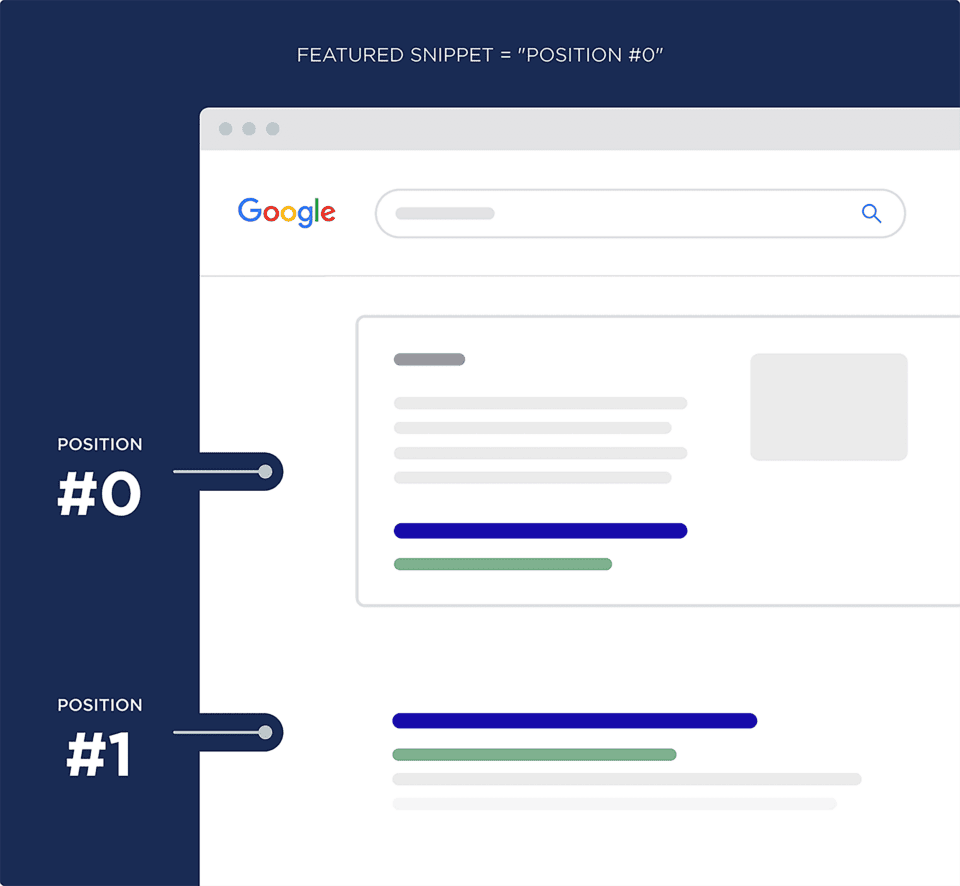
Image Source: Backlinko
Recent data reveals that Featured Snippets appear for approximately 19.2% of all search queries, representing massive visibility opportunities across virtually every industry. More significantly, Featured Snippets can increase click-through rates by 35% compared to standard organic results, according to Search Engine Land data.
Securing Featured Snippets delivers substantial value for both agencies and clients. The prominent placement builds immediate trust and authority, positioning brands as subject matter experts. Users perceive snippet-featured content as more credible and authoritative than standard search results.
The Value of Featured Snippets for Agencies and Clients
Optimized Featured Snippets provide measurable advantages that directly impact client success metrics and agency growth potential.
- Trust and Authority Boost: Snippet placement immediately elevates brand perception. Users associate Featured Snippet content with expertise and reliability, creating powerful first impressions that traditional organic rankings cannot match.
- Click-Through Rate Advantage: HubSpot research indicates that Featured Snippets generate click-through rates up to 35% higher than comparable first-position organic results. This traffic increase translates directly into more leads, conversions, and revenue for clients.
- Mobile and Voice Search Impact: Featured Snippets power voice search responses across smart speakers, mobile assistants, and in-car systems. As voice queries continue growing, snippet optimization becomes essential for capturing this expanding search behavior.
- Competitive Differentiator: Snippet visibility sets agencies apart in crowded markets. Clients recognize the strategic value of position zero rankings, making snippet optimization a powerful service differentiator during new business pitches.
Further Reading: How to Capture the Coveted Position Zero in Search Results in 2022
The Complexity Behind Securing Featured Snippets
Featured snippets appear deceptively simple on the surface, but the underlying optimization requirements involve multiple technical and strategic considerations that challenge even experienced SEO professionals.
How Google Selects Snippet-Worthy Content?
Google's featured snippet selection process involves a sophisticated algorithmic evaluation across several key factors. Understanding these elements is crucial for developing effective optimization strategies.
- Keyword nuances play a fundamental role in snippet selection. Google prioritizes content that directly addresses specific search queries with precise language matching.
- Query intent alignment determines whether content qualifies for snippet consideration.
- Content structure and formatting significantly influence snippet selection probability. Google's algorithm scans for specific HTML elements, including header tags, lists, tables, and structured data markup.
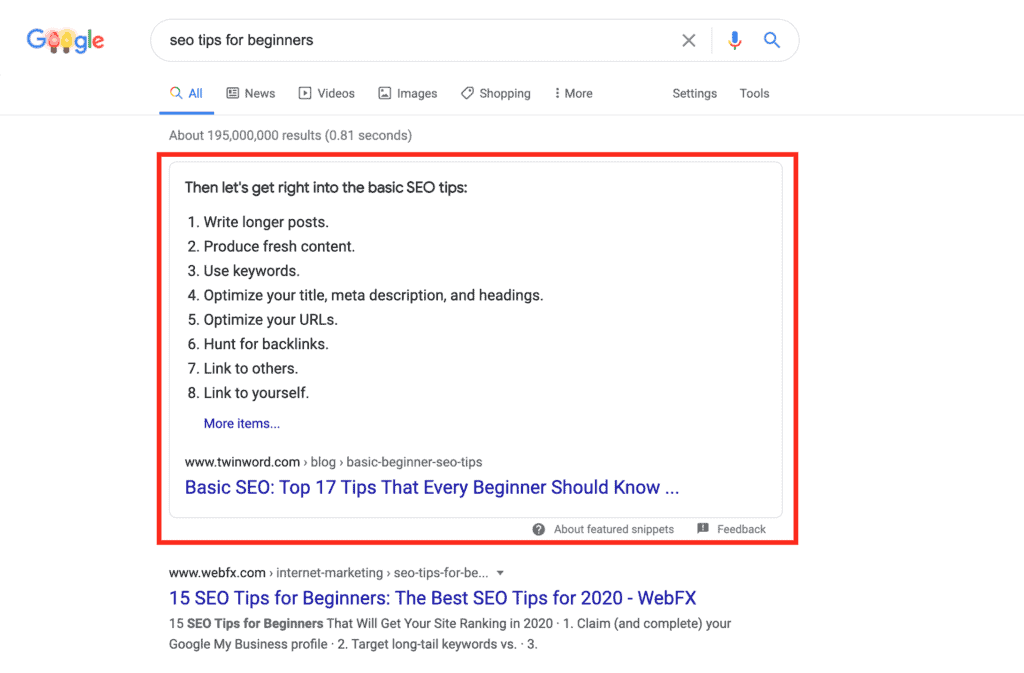
The algorithm also evaluates content freshness, domain authority, and user engagement signals when determining snippet eligibility. These factors create a complex optimization landscape that requires a systematic approach and ongoing monitoring.
Types of Snippets and Industry Applications
Different snippet formats serve specific search intents and perform better in certain industries. A white label SEO partner with experience across multiple verticals can identify optimal snippet types for each client's niche.
- Paragraph Snippets work exceptionally well for definition-based queries and explanatory content. Professional services, healthcare, and educational sectors frequently benefit from this format. These snippets typically extract 40-60 words that directly answer the user's question with clear, concise language.
- List Snippets excel for how-to queries, step-by-step processes, and ranking information. E-commerce, software, and service-based businesses see strong performance with numbered and bulleted list formats. These snippets can display up to 8 list items, making them valuable for comprehensive topic coverage.
- Table Snippets capture comparison queries, pricing information, and data-heavy content. Financial services, real estate, and B2B software companies particularly benefit from structured table formats that present information in organized columns and rows.
- Video Snippets increasingly dominate how-to and tutorial queries. Industries like fitness, cooking, technology, and DIY home improvement see substantial traffic from video snippet optimization. These require specific video SEO strategies beyond traditional text-based approaches.
- Double Featured Snippets appear when Google displays multiple snippet types for a single query. These represent premium opportunities but require advanced optimization techniques to capture both positions simultaneously.
- People Also Ask (PAA) boxes expand snippet opportunities by addressing related questions. Strategic PAA optimization can multiply snippet visibility and capture additional long-tail traffic variations.
Algorithm Changes and Competitive Hurdles
Featured snippet landscapes shift constantly due to algorithm updates and competitive actions. According to SEMrush research, featured snippet volatility averages 35% month-over-month, meaning more than one-third of snippets change regularly. This volatility creates ongoing optimization requirements that strain internal agency resources.
Algorithm updates frequently modify snippet selection criteria, content length requirements, and formatting preferences. The August 2023 helpful content update significantly impacted snippet rankings, prioritizing user-focused content over keyword-optimized pages. Agencies without dedicated algorithm monitoring systems struggle to adapt quickly to these changes.
Using White Label SEO to Win Featured Snippets: A Step-by-Step Strategy
1. Keyword Research and Intent Analysis
Effective snippet targeting begins with identifying queries that trigger Featured Snippets while aligning with the client's business objectives. White label SEO partners excel at this research phase by leveraging advanced tools and industry-specific knowledge.
Long-tail keywords often present the best snippet opportunities. These specific queries indicate clear user intent and face less competition than broad terms. White label providers analyze search patterns to identify high-probability snippet targets that align with client expertise areas.
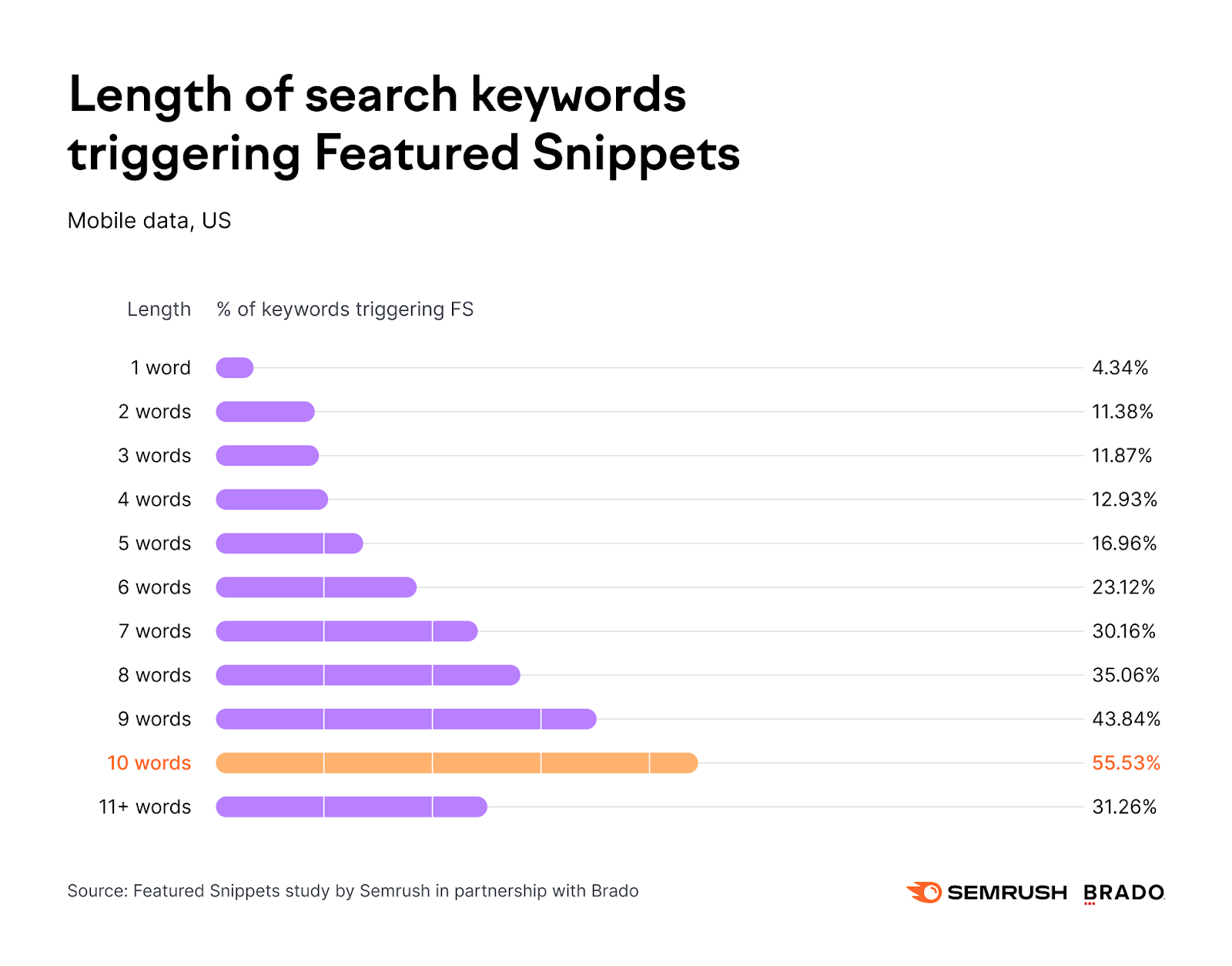
Image Source: Semrush
Industry-specific keyword analysis requires a deep understanding of how different sectors phrase questions and seek information. White label teams bring cross-industry experience that helps identify opportunities individual agencies might miss.
2. Structuring Content for Featured Snippets
Content structure directly impacts snippet eligibility. Google favors organized information that directly answers user queries.
Concise answer formatting works best for paragraph snippets. The optimal approach places the direct answer in the first 40-60 words, followed by supporting details and context. White label providers understand these formatting requirements and create content specifically structured for snippet capture.
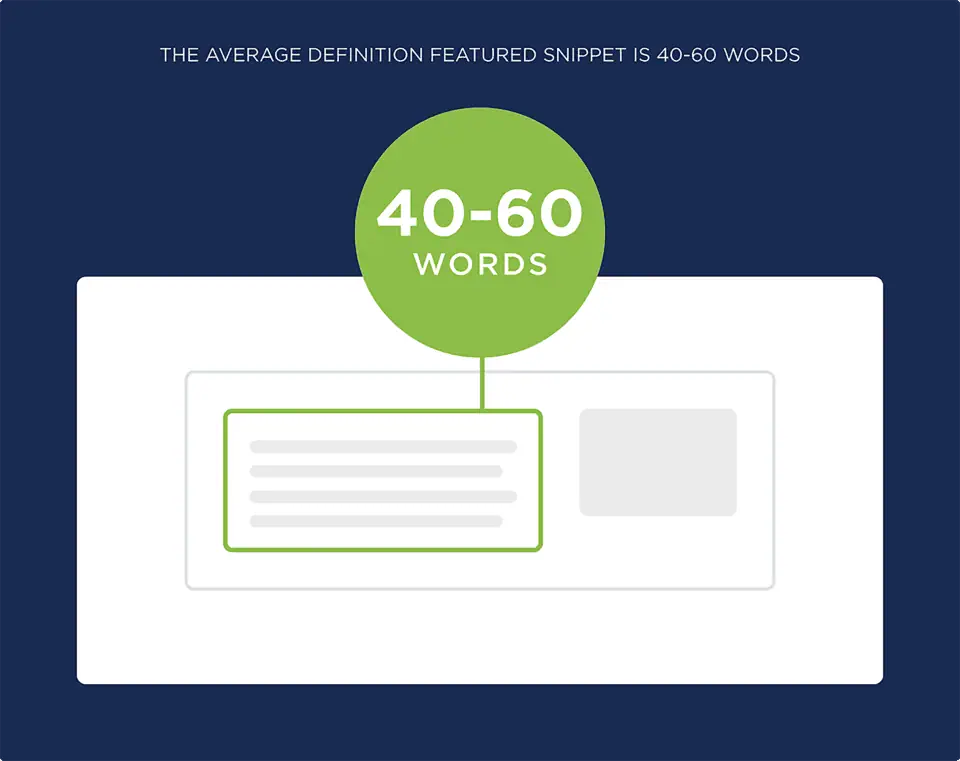
Image Source: Backlinko
Intent-matched content creation ensures alignment between user queries and content focus. White label teams analyze search intent behind target keywords, creating content that precisely addresses user needs rather than generic topic coverage.
List and table formatting require specific technical approaches that many agencies lack. White label providers have experience creating properly structured lists, comparison tables, and step-by-step guides that Google recognizes as snippet-worthy.
3. Schema Markup Integration
Structured data implementation significantly improves snippet eligibility across multiple categories.
FAQ schema markup helps content appear in Featured Snippets and People Also Ask sections. White label providers implement FAQ structured data that clearly identifies questions and answers, improving Google's ability to extract relevant content.
How-To schema markup benefits instructional content by providing clear step-by-step formatting that Google can easily parse for snippet display. This structured approach works particularly well for service-based businesses and educational content.
Review schema markup can help product and service pages appear in snippet formats that include ratings and review information, providing additional visibility and credibility signals.
4. Leveraging Data and Insights
Professional SEO tracking tools provide essential data for snippet optimization success. White label providers have access to enterprise-level platforms that individual agencies often cannot justify purchasing.
Identifying existing snippet opportunities requires systematic SERP analysis across target keywords. White label SEO agency use tools like SEMrush and Ahrefs to identify queries where clients rank on page one but lack snippet visibility, representing immediate optimization opportunities.
Monitoring SERP behavior over time reveals patterns in snippet volatility and competitive activity. This data informs optimization strategies and helps predict when defensive measures may be necessary to maintain snippet positions.
5. Metrics to Measure Snippet Success
For agencies and their white label SEO partners, measuring snippet success goes beyond bragging rights on rankings. It’s about tracking the right mix of visibility, engagement, and conversion metrics that prove tangible business impact. Here are some important metrics to track -
- Featured Snippet Acquisition Rate
- Featured Snippet CTR (Click-Through Rate)
- Traffic Lift from Snippet Queries
- Ranking Volatility in Snippet Queries
- Average Engagement Time on Snippet Landing Pages
- Bounce Rate for Snippet Traffic
- Goal/Conversion Rate from Snippet Visitors
- Query Intent Match Score
- Snippet Content Refresh Frequency
- Number of Snippet Types Won
6. Competitor Analysis
Understanding competitive snippet strategies enables agencies to develop superior approaches.
Reverse-engineering existing snippet holders reveals successful content structures, keyword targeting, and technical implementations. White label providers systematically analyze competitor snippet content to identify optimization opportunities.
Competitive monitoring alerts teams when competitors begin targeting existing client snippets, enabling proactive defensive optimization before positions are lost.
7. Enhancing With Rich Media
Multimedia content optimization extends snippet opportunities beyond text-based formats.
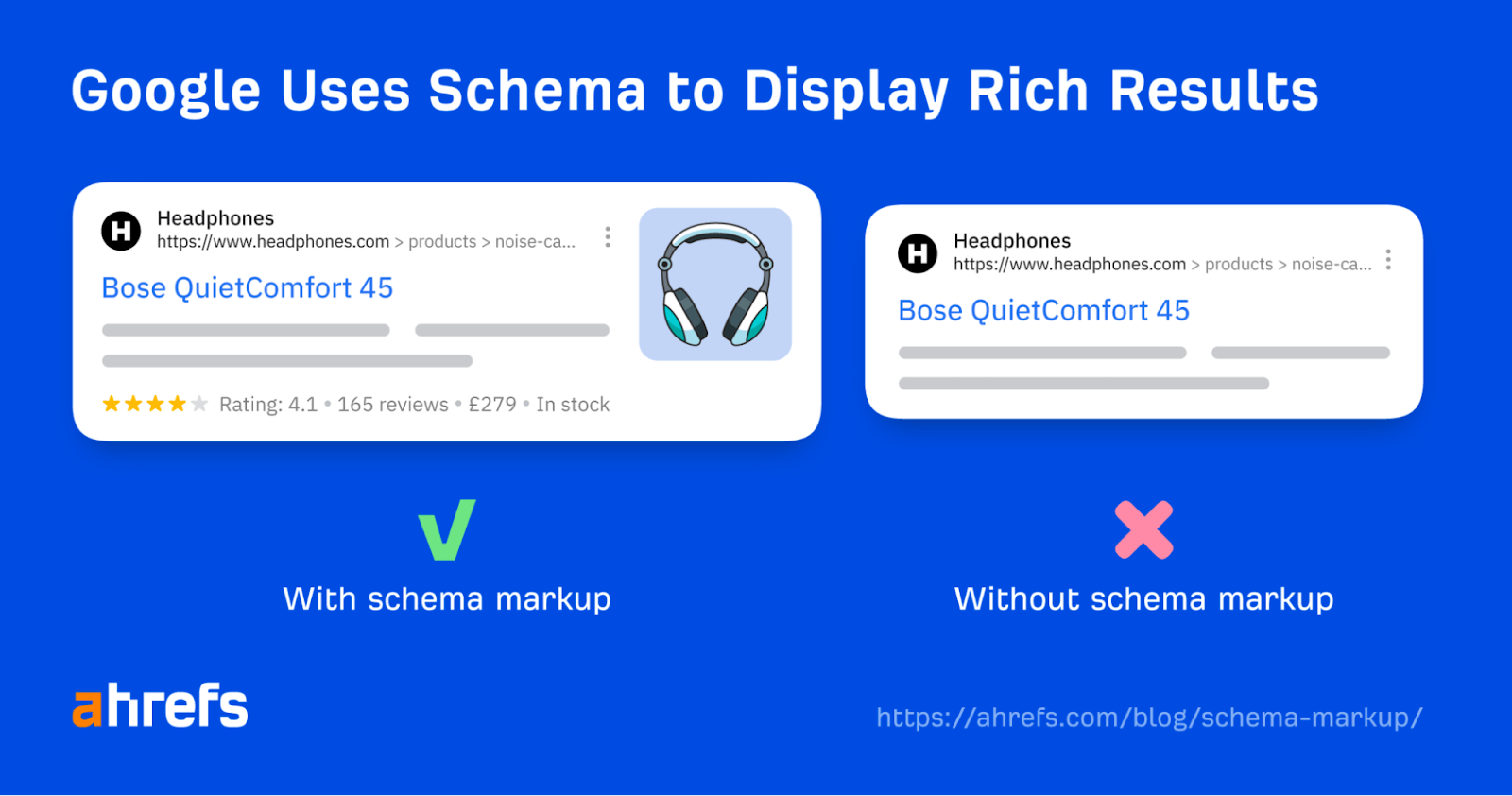
Image Source: Ahrefs
Image optimization for Featured Snippets requires specific technical approaches, including proper alt text, structured data, and contextual relevance. White label providers understand how to optimize images for snippet inclusion.
Video snippet optimization involves timestamp markup, transcript optimization, and content structure that encourages Google to feature video content in snippet formats.
Common Pitfalls to Avoid (and How White Label Providers Prevent Them)
Agencies frequently encounter specific obstacles when attempting snippet optimization without specialized expertise.
- Over-Optimizing and Triggering Penalties: Aggressive keyword stuffing or manipulative formatting can result in algorithm penalties that harm overall rankings. White label SEO partners understand Google's quality guidelines and implement sustainable optimization strategies that avoid these risks.
- Ignoring Mobile-First Snippet Formatting: Google prioritizes mobile-optimized content for snippet selection. Many agencies overlook mobile formatting requirements, reducing snippet eligibility. Experienced white label providers ensure all optimizations work seamlessly across devices.
- Neglecting Ongoing Snippet Monitoring: Snippet retention requires continuous monitoring and adjustment. Algorithm updates, competitor actions, and changing search patterns can displace successful snippets. White label teams provide systematic monitoring and rapid response capabilities.
- Forgetting Competitor Re-Optimization Cycles: Successful snippets attract competitive attention. Other sites will attempt to capture valuable snippet positions through targeted optimization. White label providers anticipate competitive responses and implement defensive strategies to maintain snippet dominance.
How Agencies Can Integrate Snippet Optimization into Their White Label SEO Strategy?
1. Deciding Which Clients Should Prioritize Snippets
Not every client benefits equally from snippet optimization. Local service businesses often see immediate ROI from locally-focused snippet targeting, while e-commerce clients may benefit more from product comparison and specification snippets.
National businesses competing in broad markets require different approaches than local companies targeting geographic-specific queries. White label SEO partner help agencies identify which clients offer the best snippet opportunities based on industry, competition level, and existing search visibility.
2. Creating Collaborative Workflows
Successful snippet optimization requires clear communication and defined responsibilities between agencies and their outsourcing partners.
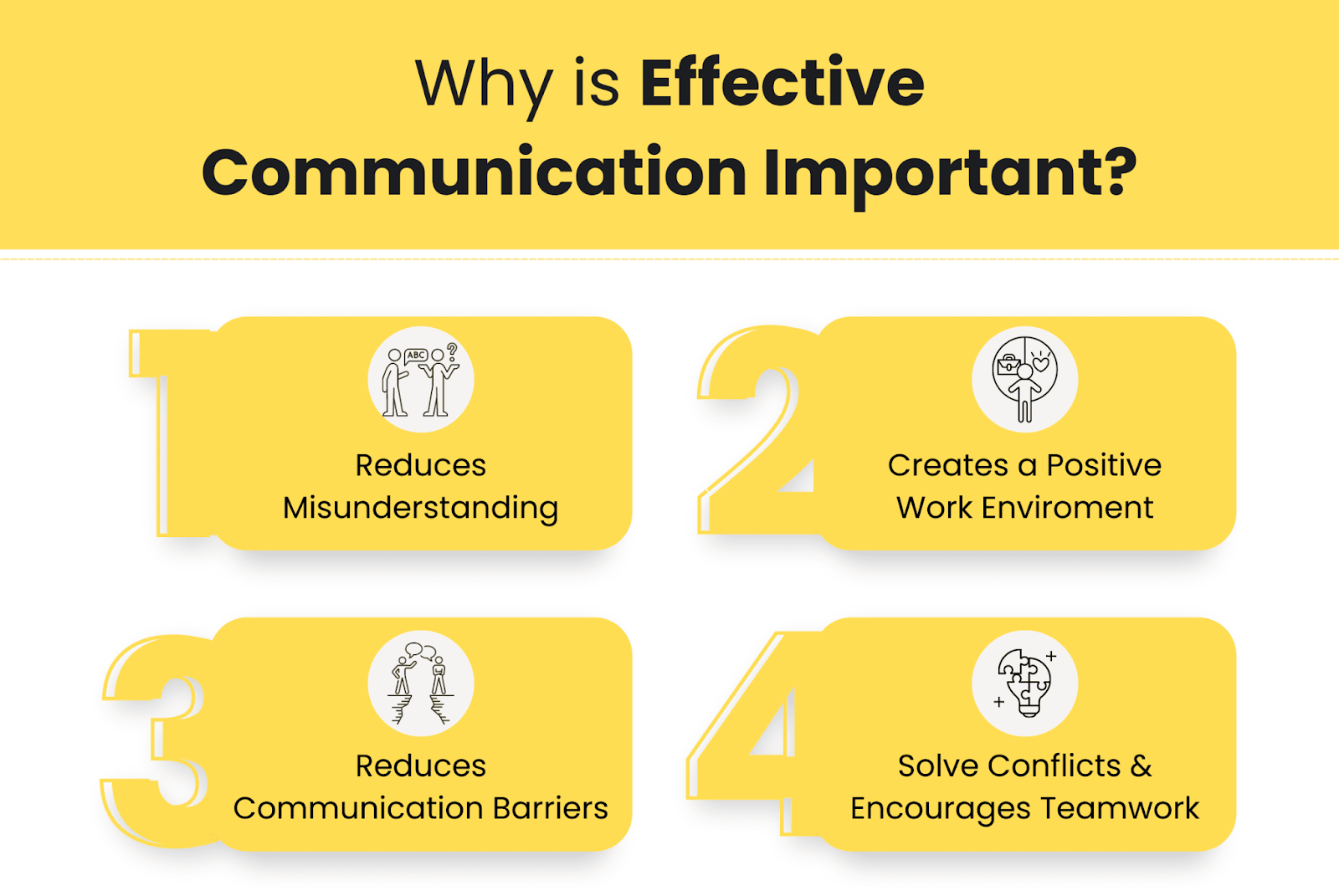
Strategic planning typically remains with the agency, including client goal setting, budget allocation, and campaign priorities. White label providers handle technical implementation, content creation, and ongoing optimization activities.
Regular reporting and communication ensure alignment between agency client management and white label execution teams. Weekly progress updates and monthly performance reviews maintain transparency and enable rapid strategy adjustments.
3. Educating Clients on the ‘Position Zero’ Value
Many clients lack understanding of the Featured Snippet value beyond traditional ranking metrics. Agencies must educate clients about snippet benefits and how to interpret performance data.
'Position zero' reporting requires specialized metrics that highlight snippet-specific performance separate from general organic rankings.
4. Bundling Snippet Optimization With Other Services
Featured Snippet optimization works synergistically with other SEO services, creating opportunities for comprehensive service packages.
Local SEO campaigns benefit from snippet targeting for location-based queries and service-specific questions. PPC campaigns can leverage snippet insights to improve ad copy and landing page optimization. Content marketing strategies naturally incorporate snippet-focused content creation.
Future Trends: Featured Snippets in 2025 and Beyond
1. AI Overviews and Their Impact on Snippets
Google's Search Generative Experience (SGE) represents a significant evolution in how search results display information. AI-powered overviews may reduce traditional Featured Snippet visibility while creating new optimization opportunities.
White label SEO services stay current with these developments, adjusting optimization strategies to maintain visibility as search interfaces evolve. Early adaptation to AI-driven search features provides competitive advantages for forward-thinking agencies.
2. Growth of Voice and Visual Search
Voice search continues expanding across smart devices, connected cars, and mobile applications. Featured Snippets power many voice search responses, making snippet optimization essential for voice search visibility.
Visual search capabilities increasingly rely on structured data and properly optimized multimedia content. White label providers understand these technical requirements and can implement optimization strategies that work across multiple search modalities.
3. Adapting to Evolving SERP Features
Search engine interfaces continue evolving with new SERP features, rich results, and interactive elements. White label SEO outsourcing provides agencies with expertise and resources to adapt quickly to these changes without major internal investment.
Established white label partnerships ensure access to cutting-edge optimization techniques and industry insights that help agencies maintain competitive advantages as search technology evolves.
How DashClicks Optimizes Featured Snippets for Your Clients?
With DashClicks, featured snippet optimization is not just a one-time effort—it’s built into every SEO campaign from day one. Their team combines strategic keyword targeting, expert-level content creation, technical SEO, and schema markup to make your clients' content snippet-ready.
DashClicks’ white label SEO services helps agencies by:
- Identifying high-opportunity keywords that trigger featured snippets.
- Writing concise, structured content tailored for Google’s preferred snippet formats (like paragraphs, lists, and tables).
- Implementing advanced schema markup to improve content clarity and eligibility.
- Monitoring performance in real-time through live dashboards that highlight featured snippet wins and search visibility.
- Re-optimizing underperforming pages with fresh formatting and updated content.
With this streamlined system, you can offer clients top-of-page visibility—without hiring additional staff or juggling complex SEO workflows.
Maximizing SERP Visibility Through Strategic Partnership
Featured Snippets represent one of the most valuable SEO opportunities available, providing immediate visibility improvements and measurable traffic increases. However, successful snippet optimization requires specialized expertise, advanced tools, and systematic execution that challenges many agency resources.
White label SEO outsourcing offers a practical solution that enables agencies to deliver sophisticated snippet optimization without major internal investment. The combination of specialized expertise, proven processes, and scalable execution creates opportunities for significant client results and agency growth.
Success in snippet optimization requires moving beyond basic SEO tactics toward specialized SERP feature targeting. Agencies that embrace this evolution through strategic white label partnerships position themselves for sustained competitive advantage in an increasingly complex search landscape.
Evaluate your current snippet visibility across client accounts and identify optimization opportunities that could drive immediate traffic improvements. Consider partnering with an experienced white label SEO company to unlock the full potential of Featured Snippet optimization for your agency's growth.
Discover how white label SEO outsourcing can help agencies secure Featured Snippets and dominate position zero with proven optimization strategies and tools.
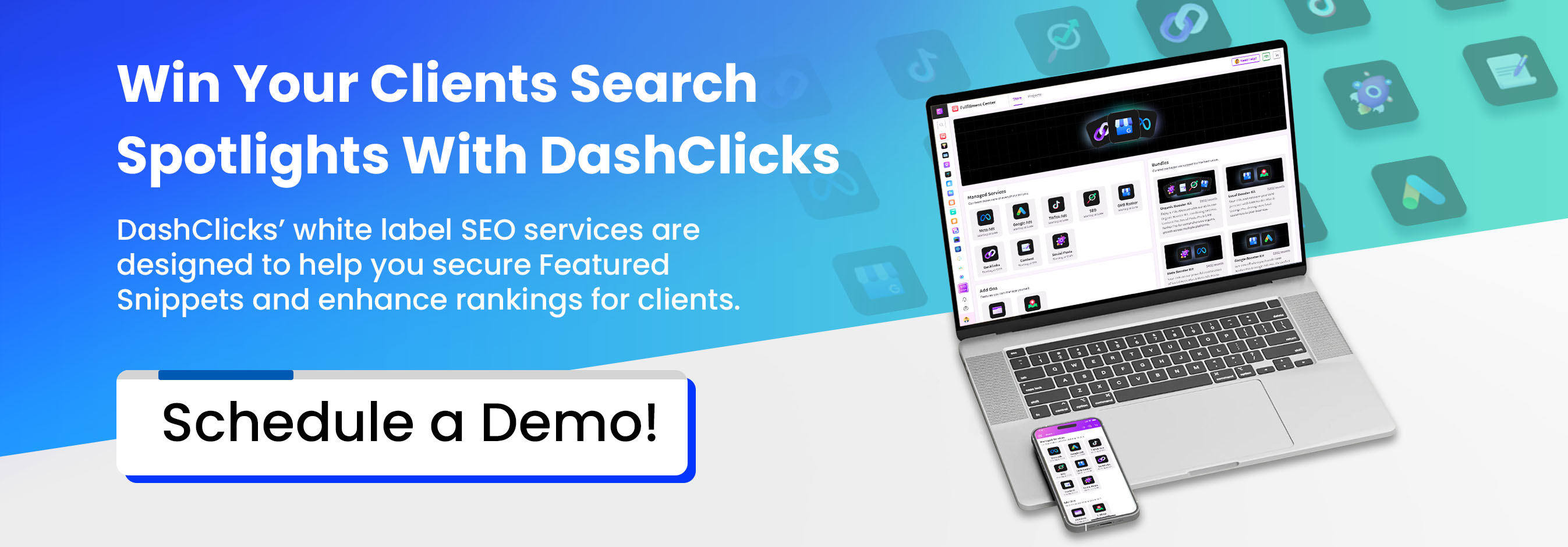

White Label SEO for E‑Commerce Clients: Best Practices and Pitfalls
E-commerce businesses face unprecedented competition, with over 26 million online stores worldwide competing for consumer attention. For these digital retailers, achieving visibility in search results isn't just important—it's essential for survival. However, optimizing thousands of product pages, managing complex technical requirements, and staying ahead of algorithm changes can overwhelm even the most resourceful businesses.
This challenge creates a significant opportunity for marketing agencies looking to expand their service offerings. White label SEO partnerships allow agencies to deliver comprehensive search optimization services to e-commerce clients without the need to build extensive in-house expertise or handle the operational burden internally.
The statistics tell a compelling story: 68% of online experiences begin with a search engine, and e-commerce businesses that invest in SEO see an average conversion rate of 14.6%—significantly higher than traditional advertising methods.
For agencies, the white label SEO market has grown by 23% annually, with e-commerce representing the fastest-growing segment.
This comprehensive guide explores how agencies can leverage white label SEO partnerships to serve e-commerce clients effectively, covering everything from understanding unique e-commerce challenges to implementing scalable solutions and avoiding costly mistakes.
Why E-Commerce SEO Is Unique?
Unlike brick-and-mortar businesses, e-commerce clients often compete nationally or globally. They deal with large product catalogs, dynamic content, and ever-changing inventory. That means SEO strategies need to be highly technical and tailored, with a strong focus on:
- Product and Category Page Optimization
- Schema Markup and Structured Data for Rich Results
- Site Speed and Mobile Responsiveness
- Internal Linking and Crawlability
- Content and Backlink Scalability Across Hundreds or Thousands of SKUs
This level of complexity is difficult to scale without the right SEO tools and systems — which is exactly where white-label SEO solutions come in.
Why White Label SEO is a Game-Changer for E-Commerce Clients?
E-commerce SEO presents unique complexities that traditional website optimization simply doesn't address. Consider a mid-sized online retailer with 10,000 products across multiple categories. Each product page requires individual optimization, while category pages need strategic keyword targeting, and the entire site architecture must support both user experience and search engine crawling.
The scale alone makes in-house SEO management challenging. Most e-commerce businesses lack the specialized knowledge needed to handle technical issues like pagination, faceted navigation, or product schema markup. Additionally, they need ongoing content creation, link-building strategies tailored to commerce sites, and constant monitoring of competitor activities.
White label SEO partnerships solve these challenges by providing agencies with access to specialized e-commerce expertise without the overhead costs. According to recent industry data, agencies using white label services can increase their service capacity by 300% while maintaining profit margins of 40-60%.
The competitive advantages are substantial. Speed-to-market becomes crucial when e-commerce clients need immediate results during peak shopping seasons. A white label partnership allows agencies to launch comprehensive SEO campaigns within weeks rather than months. Cost efficiency follows naturally—rather than hiring and training specialized staff, agencies can access expert-level services on demand.
Perhaps most importantly, white label SEO agency provide depth of expertise that would be impossible to maintain in-house. E-commerce SEO requires knowledge of platform-specific optimization (Shopify, Magento, WooCommerce), understanding of consumer search behavior, and familiarity with e-commerce-specific ranking factors.
Unique SEO Challenges for E-Commerce Clients
E-commerce websites face SEO challenges that don't exist in other industries, requiring specialized approaches and expertise to overcome effectively.
1. Duplicate Content Across Product Variations
One of the most persistent issues in e-commerce SEO involves managing duplicate content created by product variations. When a single product comes in multiple colors, sizes, or configurations, many platforms automatically generate separate URLs for each variation. This can result in dozens of nearly identical pages competing against each other in search results.
The solution requires strategic use of canonical tags, proper URL parameter handling, and careful consideration of which variations deserve individual optimization versus consolidation.
2. Technical SEO for Large Product Catalogs
Large e-commerce sites often struggle with crawl budget optimization and indexing issues. Search engines have limited resources to crawl any single website, and when faced with thousands of product pages, they must prioritize which pages receive attention.
Pagination presents another technical challenge. Category pages with hundreds of products require a careful pagination strategy to ensure all products remain discoverable while avoiding thin content penalties. Faceted navigation—allowing customers to filter by price, brand, color, or other attributes—can create thousands of low-value pages that dilute SEO efforts.
3. Mobile-First Performance and Core Web Vitals
E-commerce sites typically include numerous product images, customer reviews, and dynamic elements that can slow page loading times. With mobile commerce representing over 54% of all e-commerce traffic, page speed optimization becomes critical for both user experience and search rankings.
Core Web Vitals - Google's user experience metrics—particularly impact e-commerce sites. Loading speed, interactivity, and visual stability directly influence conversion rates. Studies show that a one-second delay in page load time can reduce conversions by 7%.
4. Complex Site Architecture and Internal Linking
E-commerce sites require sophisticated information architecture to balance user navigation with SEO requirements. The relationship between category pages, subcategory pages, product pages, and supporting content must be carefully structured to distribute link equity effectively while maintaining logical user paths.
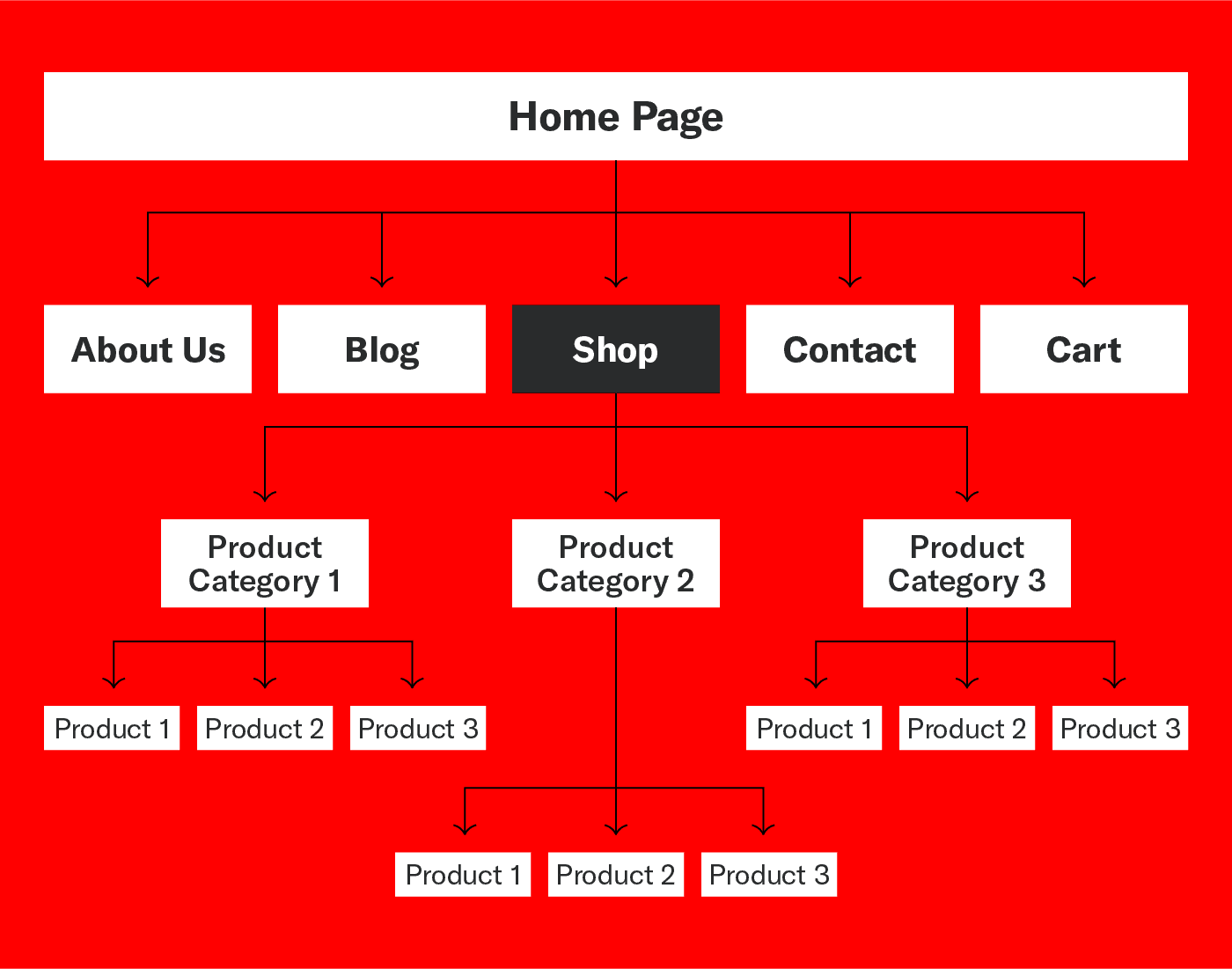
Image Source: SiegeMedia
Internal linking strategies become more complex when dealing with seasonal products, inventory changes, and promotional campaigns that temporarily alter site structure.
5. Multi-Market and Local SEO Integration
Many e-commerce businesses serve multiple geographic markets, each with unique search behaviors, seasonal patterns, and competitive landscapes. International SEO requires managing multiple language versions, currency options, and region-specific product availability while avoiding duplicate content penalties.
For businesses with physical locations, integrating local SEO elements like store locators and Google Business Profiles adds another layer of complexity.
6. E-E-A-T and Trust Signals for Commerce
Google's E-E-A-T guidelines (Experience, Expertise, Authoritativeness, Trustworthiness) apply particularly strongly to e-commerce sites handling financial transactions. Product reviews, security certifications, clear return policies, and transparent business information all contribute to trustworthiness signals that influence search rankings.
Building these trust elements requires coordinated efforts across content creation, technical implementation, and user experience design.
Core Elements of White Label SEO for E-Commerce
Successful white label SEO for e-commerce requires a systematic approach that addresses both technical foundation and ongoing optimization needs.
1. Comprehensive E-Commerce Site Audits
E-commerce audits must go beyond standard SEO analysis to include commerce-specific elements. Technical audits should examine product page templates, category page structure, checkout process optimization, and mobile commerce functionality. Content audits need to evaluate product descriptions, category page content, and supporting materials like buying guides and FAQ sections.
A thorough audit also examines competitive positioning within specific product categories, seasonal search pattern analysis, and identification of high-value keywords that competitors may be overlooking.
2. Keyword Research at E-Commerce Scale
E-commerce keyword research operates on multiple levels simultaneously. Category-level keywords capture broader search intent, while product-specific long-tail keywords target users ready to purchase. The research must also account for seasonal variations, trending products, and emerging market opportunities.
Effective keyword strategies include identifying product comparison terms, problem-solving keywords that lead to product discovery, and brand-related searches that indicate higher purchase intent.
3. Product Page and Schema Optimization
Each product page requires individual optimization while maintaining template consistency. This includes unique product descriptions that avoid manufacturer content duplication, strategic keyword placement that feels natural, and comprehensive schema markup that helps search engines understand product details, pricing, availability, and review information.
Category pages need similar attention, with optimized descriptions that provide value beyond simple product listings and internal linking strategies that support both user navigation and SEO objectives.
4. Technical Infrastructure Optimization
E-commerce technical SEO requires specialized knowledge of commerce platforms and their unique challenges. This includes optimizing URL structures for product variations, implementing proper canonical tag strategies, managing pagination and filtering systems, and ensuring mobile performance meets modern standards.
Structured data implementation becomes particularly important for e-commerce sites, as rich snippets for products, reviews, and business information can significantly improve click-through rates from search results.
5. Commerce-Focused Content Marketing
Content marketing for e-commerce extends beyond traditional blog posts to include buying guides, product comparison articles, how-to content, and seasonal shopping advice. This content must be strategically linked to relevant product and category pages while providing genuine value to potential customers.
FAQ sections, size guides, and how-to content serve dual purposes of improving user experience and capturing long-tail search traffic. This content often ranks more easily than competitive product pages while building topical authority.
6. Strategic Link Building for E-Commerce
Link building for e-commerce requires different approaches than service-based businesses. Opportunities include product reviews from industry publications, partnerships with complementary businesses, participation in industry trade publications, and creating linkable assets like industry reports or trend analyses.
DashClicks offers specialized white label backlinks services in link building strategies, helping agencies deliver comprehensive campaigns that drive both authority and targeted traffic to client sites.
7. Local SEO Integration
Implementing strong local SEO practices is essential for driving foot traffic and achieving visibility in local search results. One core strategy involves integrating store locators into your website. These tools provide users with an easy way to find their nearest location, offering details such as directions, contact information, and operating hours. Optimizing these pages with local keywords, structured data, and user-friendly design enhances their visibility in search engines.
Additionally, leveraging Google Business Profile ensures your business appears prominently in local search results and Google Maps. By maintaining accurate and up-to-date information—such as business Name, Address, Phone Number (NAP), and customer reviews—you increase your chances of ranking higher in local search.
Regular updates, engaging posts, and leveraging features like Q&A and photos strengthen online presence while building trust with potential customers. Combined, these tactics maximize local search visibility and drive both online and offline conversions.
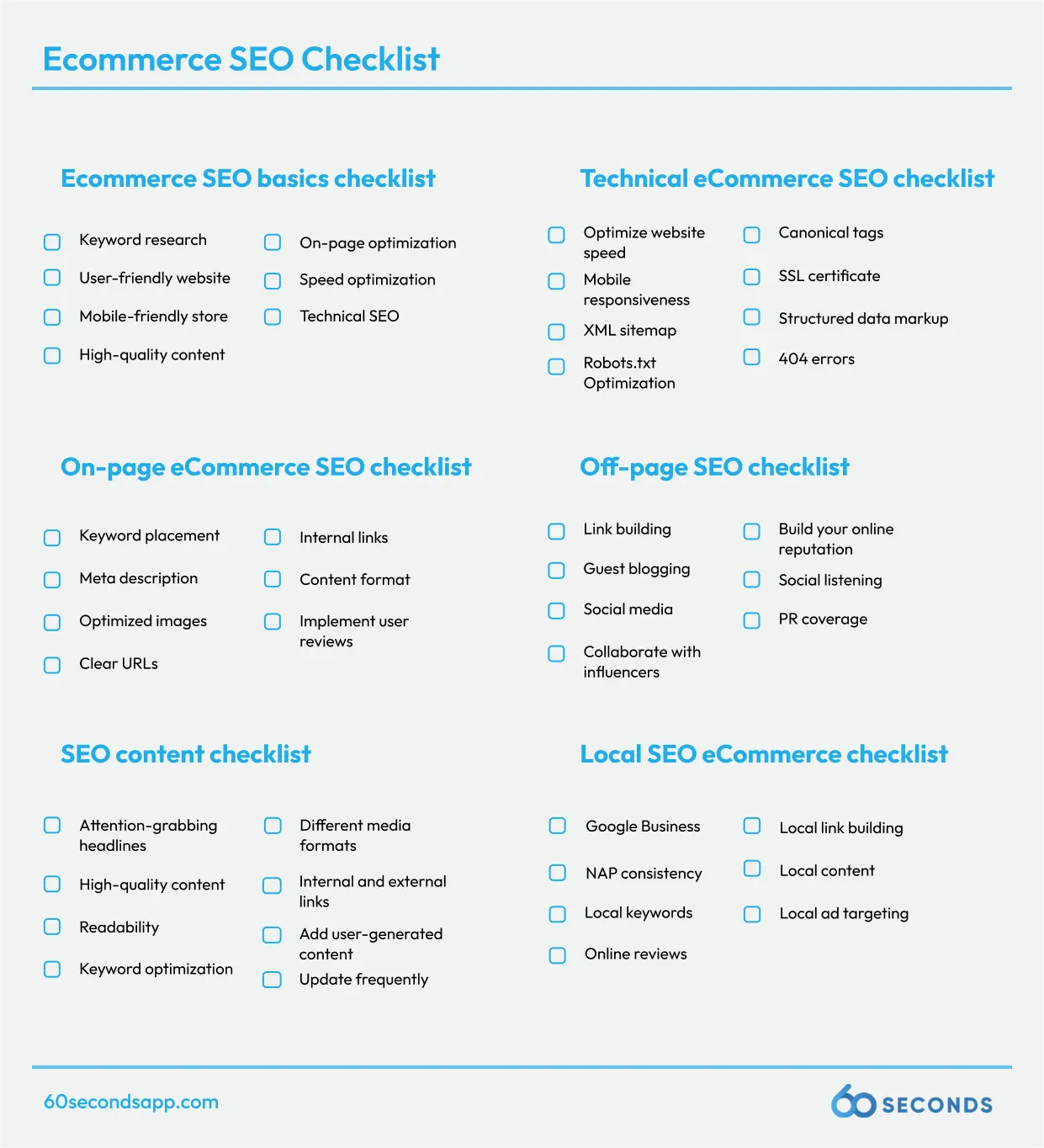
Image Source: 60seconds
Best Practices for White Label SEO Implementation
Maximizing the value of white label SEO partnerships requires strategic planning and clear communication protocols.
1. Understanding Client Needs and Market Positioning
Before engaging white label SEO services, agencies must thoroughly understand each client's unique market position, target audience demographics, and business objectives. E-commerce clients may prioritize different metrics—some focus on overall traffic growth, others on specific category rankings, and many need support for seasonal campaigns or new product launches.
Understanding the client's target audience allows for more precise keyword targeting and content strategies. Regional preferences, seasonal shopping patterns, and competitive landscape analysis all inform the strategic approach.
2. Choosing Performance Metrics That Matter
E-commerce SEO success requires tracking metrics that directly correlate with business outcomes. While traditional metrics like keyword rankings and organic traffic remain important, e-commerce clients need visibility into conversion-focused measurements.
Key metrics include organic revenue growth, product page conversion rates, category page performance, and seasonal trend analysis. Advanced tracking should measure the customer journey from initial search through purchase completion, identifying optimization opportunities at each stage.
Data transparency becomes crucial for maintaining client relationships. White label SEO partner should offer detailed reporting that agencies can brand and present to clients with confidence.
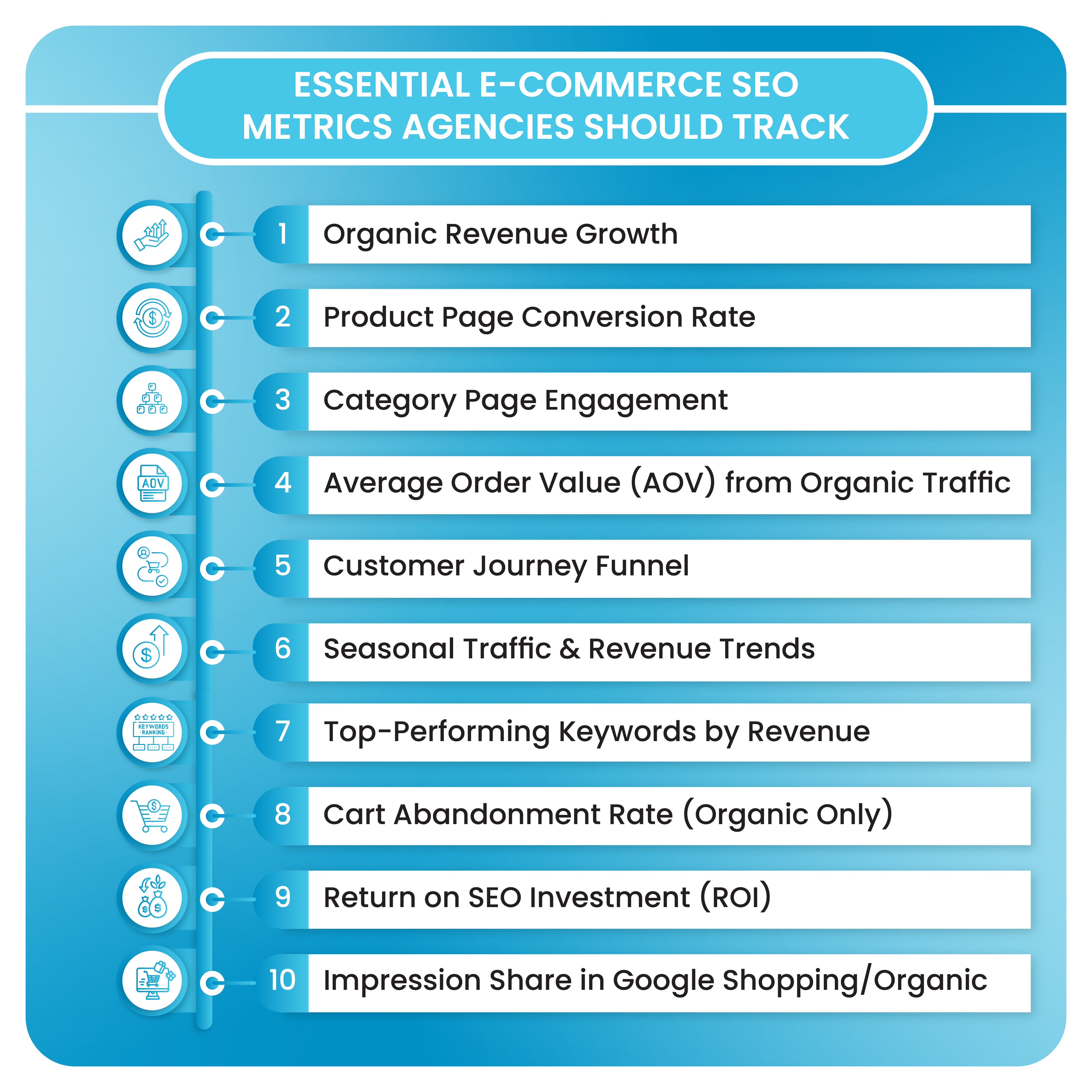
3. Prioritizing Technical Foundation
E-commerce sites require solid technical foundations before content and link building efforts can achieve maximum impact. Site speed optimization, mobile performance, and structured data implementation often provide immediate improvements in search visibility and user experience.
The technical audit and optimization phase should address crawl budget optimization, duplicate content issues, and conversion rate optimization elements that support SEO objectives.
4. Establishing Clear Communication Protocols
Successful white label partnerships require clear communication channels and regular review cycles. Agencies should establish protocols for client feedback integration, campaign adjustments, and performance reporting.
Regular communication ensures that white label providers understand client brand guidelines, seasonal priorities, and any business changes that might impact SEO strategy. This includes inventory changes, new product launches, promotional campaigns, and market expansion plans.
DashClicks facilitates this communication through comprehensive project management software and branded reporting dashboards that maintain the agency-client relationship while ensuring quality service delivery.
Action Plan to Get Started With White Label SEO Services
Step 1: Define Clear Objectives
Identify specific business outcomes, including organic revenue targets, traffic growth goals, and market expansion objectives. Set measurable KPIs including organic conversion rates, category page rankings, and return on advertising spend from organic channels.
Prioritize clients requiring immediate SEO support while developing systematic approaches for scaling services across larger client portfolios.
Step 2: Research Qualified Partners
Evaluate white label SEO providers based on e-commerce platform expertise, case study results, and scalability potential. Review client testimonials, sample deliverables, and pricing models that align with agency profit margins.
Verify provider experience with relevant e-commerce platforms and their understanding of industry-specific challenges like seasonal fluctuations and product catalog management.
Step 3: Conduct Comprehensive Audits
Perform technical assessments covering site speed, mobile usability, and crawl error identification. Analyze existing content quality, keyword targeting effectiveness, and competitive positioning across product categories.
Review current link profiles, identify optimization opportunities, and benchmark performance against direct competitors to establish improvement potential.
Step 4: Establish Service Frameworks
Define service scope including audit frequency, content deliverables, technical implementations, and link-building strategies. Create white-labeled reporting dashboards that maintain agency branding while providing client transparency.
Agree on communication schedules, review processes, and escalation procedures that ensure consistent service quality across all client relationships.
Step 5: Create Seamless Onboarding
Document brand guidelines, tone requirements, and client-specific considerations for white label partners. Share detailed client expectations and establish communication protocols that maintain professional relationships.
Develop automation tools and templates that streamline client handoff processes while ensuring all necessary information transfers accurately.

Step 6: Launch Pilot Campaigns
Begin with one or two clients to test workflows, communication processes, and service quality before scaling operations. Monitor early results including ranking improvements, traffic growth, and conversion rate changes.
Use pilot campaign data to refine processes, adjust service offerings, and optimize client communication approaches for broader implementation.
Step 7: Scale Operations Strategically
Gradually expand client portfolios as processes stabilize and prove effective. Regularly review partnership ROI, profit margins, and client satisfaction metrics to ensure sustainable growth.
Incorporate advanced strategies like schema markup optimization, voice search preparation, and artificial intelligence integration as client needs evolve.
Step 8: Monitor and Optimize Continuously
Implement quality control systems that prevent duplicate content issues, link spam, and other problems that could damage client websites. Ensure transparent reporting maintains client trust while demonstrating measurable value.
Stay current with algorithm updates, industry trends, and e-commerce platform changes that affect optimization strategies and client results.
Common Pitfalls and How to Avoid Them
1. Quality Control Failures
Poor-quality backlinks or substandard content can damage client websites and agency reputations simultaneously. Choosing white label SEO partner thoroughly includes reviewing case studies, checking references, and evaluating sample deliverables before committing to partnerships.
Regular quality audits of delivered work help identify issues before they impact client results. Establishing clear quality standards and review processes protects both agency and client interests.
2. Neglecting Long-Tail Opportunities
Generic keyword targeting often overlooks high-converting long-tail opportunities that drive e-commerce revenue. Terms like "best portable bluetooth speakers" may have lower search volumes but significantly higher conversion potential than broad category terms.
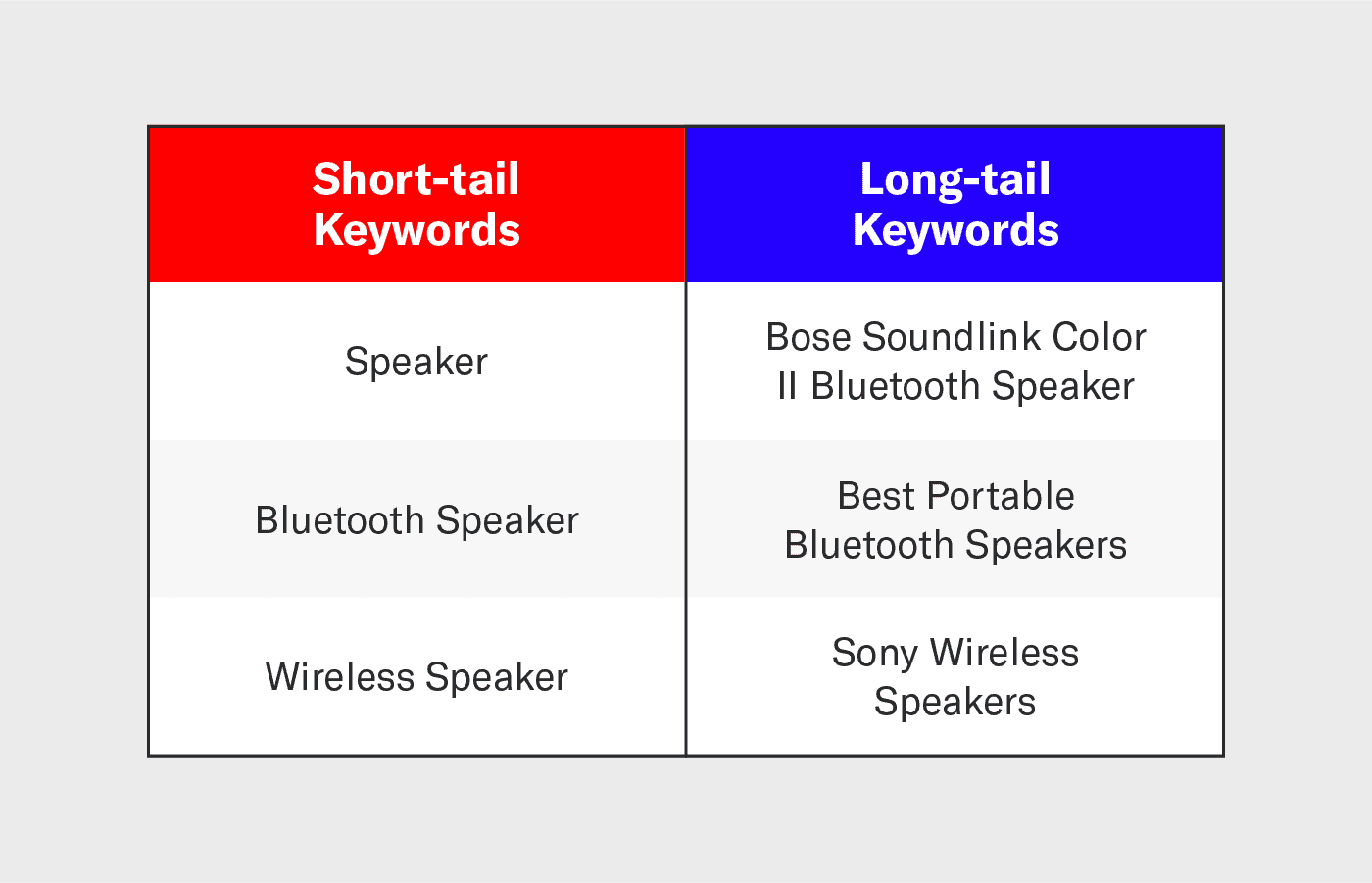
Image Source: SiegeMedia
Comprehensive keyword research should identify opportunities across the entire purchase funnel, from broad awareness terms to specific product queries that indicate strong purchase intent.
3. Overlooking Local SEO Integration
Multi-location retailers require coordinated local SEO strategies that complement broader e-commerce optimization efforts. Google Business Profile optimization, local citation management, and location-specific content creation become essential for businesses serving local markets.
Ignoring local search opportunities can result in lost revenue from nearby customers who prefer shopping with local businesses or visiting physical stores before purchasing.
4. Technical Oversight Gaps
Site speed issues, mobile performance problems, and structured data errors can undermine even excellent content and link building strategies. Regular technical monitoring helps identify and resolve issues before they impact search performance significantly.
Core Web Vitals monitoring becomes particularly important for e-commerce sites where page load speeds directly impact conversion rates and customer satisfaction.
5. Insufficient Conversion Tracking
Ranking improvements without corresponding revenue growth indicate strategic misalignment. Comprehensive tracking should connect organic search traffic to actual sales outcomes, enabling data-driven optimization decisions.
Analytics implementation should track the complete customer journey from search query to purchase completion, identifying opportunities to improve conversion rates alongside traffic growth.
6. Ignoring E-Commerce Evolution
Voice search optimization, artificial intelligence integration, and zero-click search results represent emerging trends that impact e-commerce SEO strategies. Staying current with industry developments ensures long-term campaign effectiveness.
Regular strategy reviews should incorporate new search features, algorithm updates, and consumer behavior changes that affect e-commerce search performance.
How Agencies Can Win With White-Label SEO Services from DashClicks?
Managing SEO for e-commerce brands requires more than just keywords and backlinks — it demands agility, precision, and scalable systems. For agencies serving online retailers, offering white label SEO can be a powerful growth strategy, enabling you to deliver high-impact results without expanding your in-house team. But it comes with its own set of best practices — and potential pitfalls.
How DashClicks Powers E-Commerce SEO at Scale?
Here’s what you need to know to succeed, and how DashClicks can be the game-changer that transforms your e-commerce SEO offerings.
DashClicks offers a full suite of white label SEO services designed specifically to meet the challenges of modern e-commerce. Their platform includes:
- A fully branded client dashboard for transparent communication and reporting.
- Scalable, on-demand SEO fulfillment done by experts.
- In-depth technical audits to fix backend issues affecting rankings.
- Smart tools like InstaReports, Analytics, and SEO Campaign Manager to streamline your operations and impress clients.
- White-label local SEO, backlink services, and content creation — all tailored to e-commerce SEO needs.
For digital agencies, DashClicks isn’t just a tool — it’s an operations engine. By automating fulfillment, reporting, and client communication, DashClicks frees up your team to focus on strategy and client growth. It enables even small agencies to deliver enterprise-level results with confidence and consistency.
Conclusion
White label SEO partnerships offer agencies scalable solutions for serving e-commerce clients effectively without developing specialized expertise internally. Success requires careful partner selection, clear communication protocols, and systematic quality control processes.
The e-commerce landscape continues evolving with new technologies, consumer behaviors, and search engine features. Agencies that establish strong white label relationships while maintaining focus on client outcomes position themselves for sustained growth.
Research potential partners thoroughly, understand client needs comprehensively, and implement systematic approaches to quality control. The right partnerships can transform agency capabilities while delivering exceptional results for e-commerce clients.
Choose partners wisely, monitor results consistently, and adapt strategies based on performance data and industry evolution.
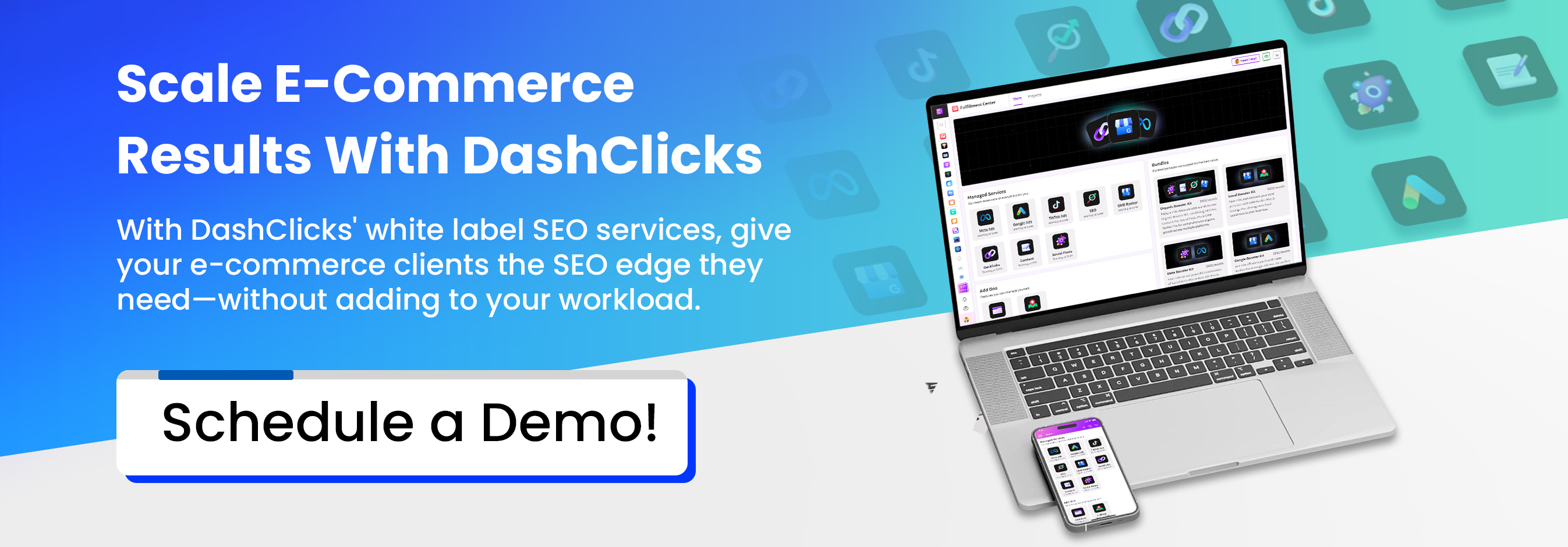

How to Leverage White Label SEO for Multi-Location Clients
Managing SEO for a single business location can be challenging enough. But when you're dealing with dozens, hundreds, or even thousands of locations, the complexity multiplies exponentially. Multi-location businesses face unique hurdles that can make or break their local search visibility—and ultimately, their revenue.
Consider this: 74% of enterprises now outsource SEO for their multi-location operations, recognizing that internal teams simply can't keep pace with the demands of local search optimization at scale. Meanwhile, 46% of all Google searches have local intent, making local SEO a critical battleground for businesses with multiple locations.
The stakes couldn't be higher. A single inconsistency in your Name, Address, Phone (NAP) information across locations can confuse search engines and customers alike. Duplicate content penalties can tank your rankings. Poor review management at one location can damage your entire brand's reputation.
This is where white label SEO emerges as the ultimate solution. By partnering with specialized providers, agencies can deliver comprehensive, scalable SEO services to multi-location clients without the overhead of building massive internal teams. White label SEO enables you to maintain quality, consistency, and brand integrity across hundreds of locations while maximizing profitability.
This guide will walk you through the complexities of multi-location SEO, explain why white label SEO services are game-changers, and provide actionable strategies for implementing successful campaigns. You'll also discover how platforms like DashClicks can streamline your white label SEO operations, making it easier than ever to scale your services.
Understanding Multi-Location SEO Challenges
1. Complexity of Managing Multiple Locations
Multi-location SEO isn't just regular SEO multiplied—it's an entirely different beast with unique challenges that can overwhelm even experienced marketing teams.
NAP consistency issues top the list of headaches for multi-location businesses. Imagine trying to ensure that your business name, address, and phone number appear identically across 200+ directories for each of your 50 locations. That's over 10,000 data points that must remain perfectly synchronized. A single typo—like "St." instead of "Street"—can create confusion that damages local rankings across search engines.
Here is an example of Domino’s Pizza. The business maintains the same naming format for all its Chicago locations, reinforcing brand trust. At the same time, each listing has a unique address and phone number, confirming they are distinct storefronts.
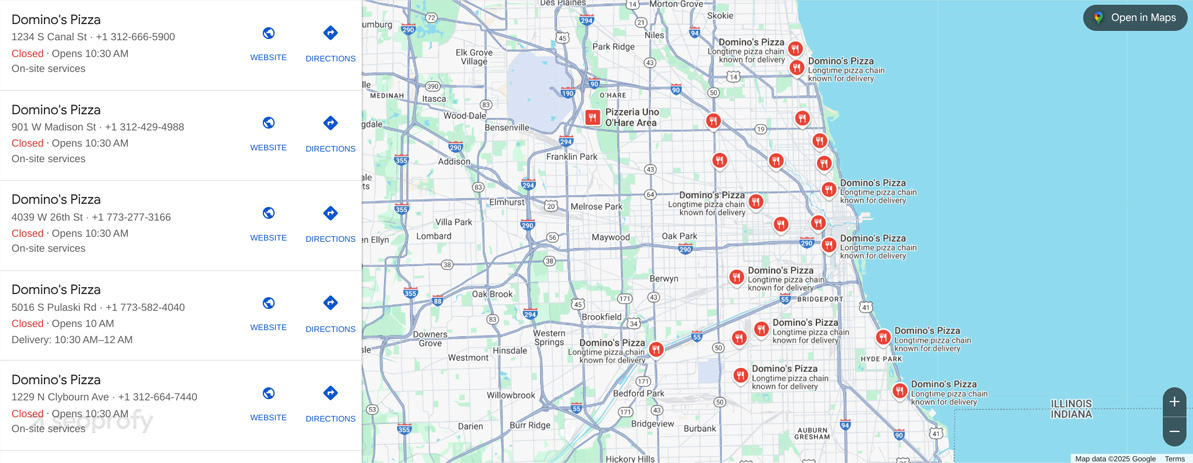
Duplicate content across multiple local landing pages presents another major obstacle. Many businesses make the mistake of creating nearly identical pages for each location, simply swapping out the city name. Google's algorithms are sophisticated enough to recognize this pattern and may penalize sites for thin or duplicate content, severely impacting search visibility.
Tracking rankings and traffic per location adds another layer of complexity. Standard SEO tools often struggle with location-specific data, making it difficult to understand which locations perform well and which need attention. Without granular insights, businesses can't make informed decisions about resource allocation or strategy adjustments.
2. High Resource Requirements
The manual labor required for effective multi-location SEO is staggering. Citation management alone can consume hundreds of hours monthly. Consider that each location might need listings on 50-100 directories, from major platforms like Google Business Profile and Yelp to niche industry directories and local chambers of commerce.
Localized content creation at scale presents its challenges. Each location needs unique, relevant content that speaks to local customers while maintaining brand consistency. This might include location-specific landing pages, blog posts, local event coverage, community involvement highlights, and pages optimized for local keywords.
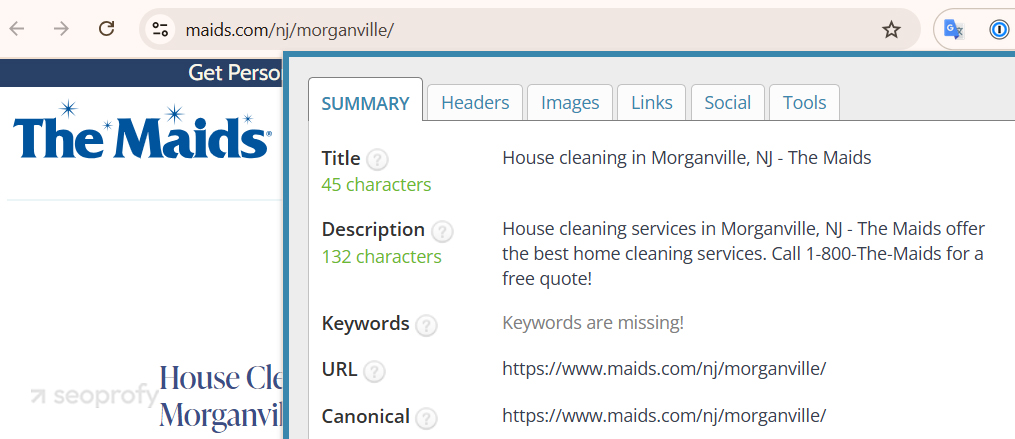
Ongoing review and reputation monitoring multiply the workload further. Recent studies show that 87% of consumers read online reviews for local businesses, making reputation management crucial. For a business with 100 locations, this might mean monitoring and responding to thousands of reviews monthly across dozens of platforms.
3. The Risk of Inconsistent Brand Voice
When different teams or agencies handle SEO for different locations, brand inconsistency becomes a real threat. Varying messaging, design elements, or customer service approaches across locations can confuse customers and dilute brand strength.
This inconsistency extends beyond aesthetics. Different locations might target conflicting keywords, create contradictory content, or implement competing strategies that cannibalize each other's search performance. The result is a fractured online presence that fails to leverage the full power of a multi-location brand.
Why White Label SEO is a Game-Changer for Multi-Location Brands?
1. Scalability Without Adding Internal Overhead
White label SEO services provider specializes in handling large-scale operations with efficiency that's nearly impossible to replicate internally. Rather than hiring dozens of SEO specialists, content creators, and technical experts, businesses can access entire teams of seasoned professionals instantly.
These providers have already invested in the tools, systems, and processes needed to manage hundreds of locations simultaneously. They can expand campaigns to new locations seamlessly, leveraging proven templates and workflows that maintain quality while reducing implementation time.
For agencies serving multi-location clients, this scalability is transformative. You can take on larger clients and more ambitious projects without the risk and expense of rapidly scaling your internal team. The ability to handle 500 locations as easily as 50 opens up entirely new market opportunities.
2. Cost Efficiency and Faster Time-to-Market
Building an internal team capable of handling multi-location SEO requires significant investment. Beyond salaries, you need premium SEO tools, which can cost thousands monthly for enterprise-level access. You need training, management overhead, and often expensive trial-and-error learning periods.
White label SEO providers have already made these investments and spread costs across multiple clients. The result is dramatically lower per-location costs compared to internal operations. Many businesses find they can serve 3-5 times more locations for the same budget when leveraging white label services.
Speed to market improves dramatically as well. White label SEO providers have pre-built systems, templates, and processes that can be deployed immediately. What might take months to develop internally can be launched in weeks, giving clients faster results and competitive advantages.
3. Consistent Quality and Brand Representation
Professional white label SEO providers understand the importance of brand consistency across all touchpoints. They develop comprehensive brand guidelines and implement quality control processes that ensure every piece of content, every listing, and every customer interaction reflects your client's brand appropriately.
White-labeled reporting maintains your agency's brand visibility while providing detailed insights. Clients see professional, branded reports that reinforce your agency's value while benefiting from the sophisticated analytics and tracking capabilities of specialized SEO platforms.
Core White Label SEO Services for Multi-Location Clients
1. Local Listings and Citation Management
Effective citation management forms the foundation of multi-location SEO success. A white label SEO agency typically offers automated directory submissions that can handle hundreds of locations simultaneously, ensuring consistent NAP information across all major directories.
Advanced citation management goes beyond basic submissions. It includes ongoing monitoring for inconsistencies, duplicate listings cleanup, and regular audits to identify new citation opportunities. Many providers offer real-time alerts when inconsistencies appear, allowing for immediate corrections that prevent ranking damage.
2. Google Business Profile (GBP) Optimization
Google Business Profile optimization at scale requires specialized tools and expertise. White label providers can handle bulk GBP setup, ensuring every location has a fully optimized profile with consistent business information, categories, and attributes.
Ongoing GBP management includes regular posting schedules, review monitoring and response, Q&A management, and performance tracking. Many providers offer branded response templates that maintain a consistent voice while addressing location-specific concerns.
3. Local Landing Page Development and Content
Creating unique, engaging content for hundreds of locations requires sophisticated templating systems that avoid duplicate content penalties while maintaining efficiency. White label SEO providers typically use advanced content management systems that can generate location-specific pages with unique elements like local landmarks, demographics, and community events.
Content strategies often include local keyword optimization, community-focused blog content, local event coverage, and pages highlighting location-specific services or specialties. The key is creating content that feels genuinely local while maintaining brand consistency.
4. On-Page & Technical SEO at Scale
Technical SEO becomes exponentially more complex with multiple locations. White label providers implement structured data (Local Business schema) across all locations, ensuring search engines understand the relationship between different locations and the parent business.
Site architecture optimization for multi-location sites requires careful planning to avoid internal competition while maximizing the authority flow between locations. This includes URL structure optimization, internal linking strategies, and technical elements like site speed optimization across hundreds of pages.
5. Review & Reputation Management
Reputation management at scale requires sophisticated monitoring systems that can track reviews across dozens of platforms for hundreds of locations. White label providers typically offer automated alert systems that notify managers immediately when new reviews appear, allowing for prompt responses.
Response management often includes branded templates that can be customized for specific situations while maintaining a consistent voice and messaging. Many providers offer sentiment analysis and reporting that help identify trends and issues across locations.
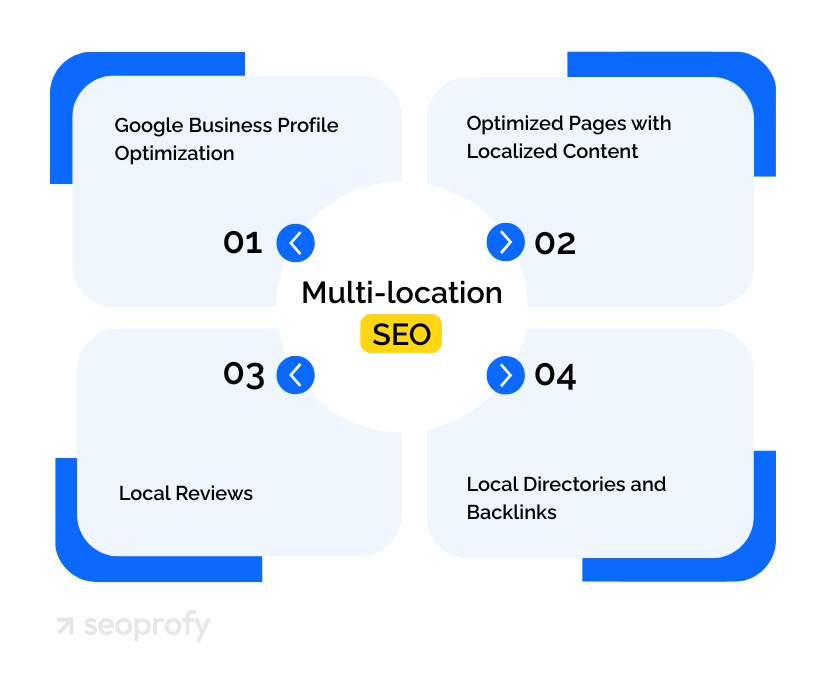
Image Source: SeoProfy
DashClicks’ Reputation Management software is designed to simplify and scale this process for agencies. It centralizes review monitoring from major platforms like Google, Facebook, and Yelp into a single dashboard, provides instant notifications, and enables real-time responses using customizable templates.
6. Reporting and Performance Dashboards
Comprehensive reporting for multi-location SEO requires sophisticated data aggregation and visualization capabilities. White label providers typically offer white-labeled dashboards that consolidate performance data across all locations while maintaining your agency's branding.
These dashboards often include location-specific ranking tracking, traffic analysis, conversion metrics, and competitive intelligence. Advanced reporting might include automated alerts for significant changes and predictive analytics to identify opportunities or threats.
Comprehensive reporting for multi-location SEO requires sophisticated data aggregation and visualization capabilities. White label providers typically offer white label dashboard software that consolidates performance data across all locations while maintaining your agency's branding. These dashboards often include location-specific ranking tracking, traffic analysis, conversion metrics, and competitive intelligence. Advanced reporting might include automated alerts for significant changes and predictive analytics to identify opportunities or threats.
DashClicks’ Dashboard and InstaReports software provide exactly these capabilities. With real-time insights, branded client reports, and customizable widgets, InstaReports allows agencies to deliver professional, easy-to-understand SEO reporting at scale. The platform supports multi-location visibility and integrates seamlessly with key tools, including Google Analytics, Search Console, and call tracking systems, empowering agencies to provide high-value insights without spending hours compiling data manually.
How to Leverage White Label SEO for Your Multi-Location Clients?
1. Audit and Benchmark Existing Local Presence
Before implementing any strategy, conduct a comprehensive audit of your client's current local presence. This includes NAP consistency checks across major directories, Google Business Profile health assessments, and local ranking analysis for key terms.
Utilize tools to identify duplicate listings, incomplete profiles, and inconsistent information that may be hindering performance. Document current rankings, traffic levels, and conversion metrics to establish clear benchmarks for measuring improvement.
2. Partner With the Right White Label SEO Provider
Selecting the right white label partner is crucial for success. Evaluate providers based on their multi-location experience, available automation tools, reporting capabilities, and communication processes. DashClicks, for example, offers comprehensive white label SEO solutions specifically designed for agencies serving multi-location clients.
Look for providers who offer transparent processes, regular communication, and the ability to handle your specific scale requirements. Ask for case studies from similar multi-location projects and references from other agency partners.
Further Reading: How to Choose a White Label SEO Partner That Delivers Real Results
3. Create a Standardized SEO Framework
Develop templated workflows for onboarding new locations, content production, and ongoing optimization. This framework should include standard processes for citation building, content creation, and performance monitoring while allowing for location-specific customization.
Quality control processes are essential when working at scale. Establish review procedures, approval workflows, and regular audits to ensure consistent quality across all locations.
4. Roll Out Multi-Location Campaigns in Phases
Rather than launching campaigns for all locations simultaneously, consider a phased approach. Start with a pilot group of 10-20 locations to test strategies, refine processes, and demonstrate results before expanding to the full network.
This approach allows you to identify and resolve issues early, optimize strategies based on initial results, and build confidence with clients through demonstrated success.
5. Maintain Ongoing Optimization and Reporting
Multi-location SEO requires continuous attention and optimization. Establish regular review cycles for NAP monitoring, content updates, and performance analysis. Monthly or quarterly reviews should include comprehensive reporting and strategic recommendations for improvement.
Use data-driven insights to identify high-performing strategies that can be scaled across locations and underperforming areas that need attention or strategy adjustments.
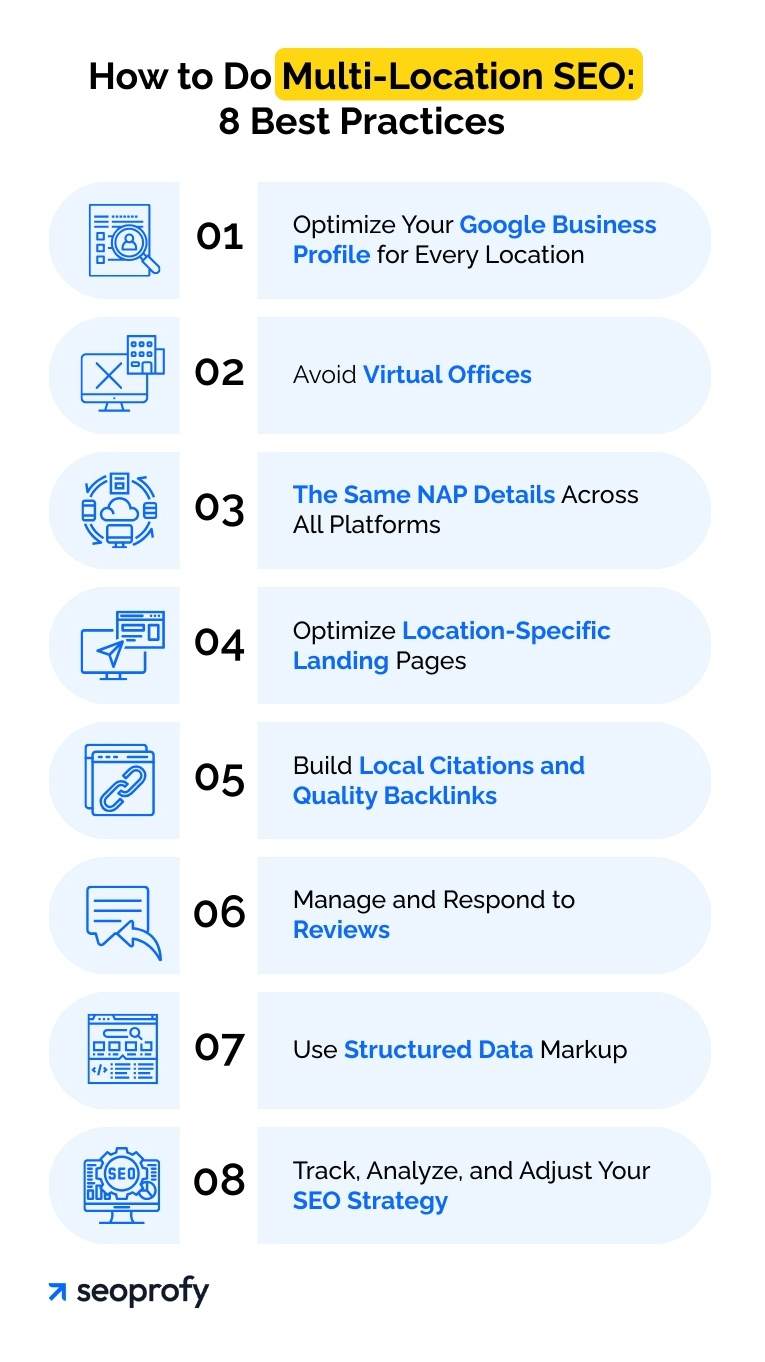
Image Source: SeoProfy
Common Pitfalls to Avoid
Many multi-location SEO campaigns fail due to preventable mistakes. Duplicate content issues are among the most common, often resulting from lazy templating that creates nearly identical pages for each location. Invest in sophisticated content systems that generate truly unique content for each location.
Inconsistent brand voice across locations can confuse customers and dilute brand strength. Establish comprehensive brand guidelines and quality control processes to ensure consistency across all locations and touchpoints.
Technical SEO fundamentals often get overlooked in the complexity of managing multiple locations. Site speed, mobile optimization, and schema markup are just as important for multi-location sites as single-location sites, but they require more sophisticated implementation and monitoring.
Choosing a white label SEO provider without proven multi-location experience is a recipe for disappointment. The skills and systems required for multi-location SEO are specialized and different from traditional SEO. Ensure your provider has demonstrated success with similar clients and scale requirements.
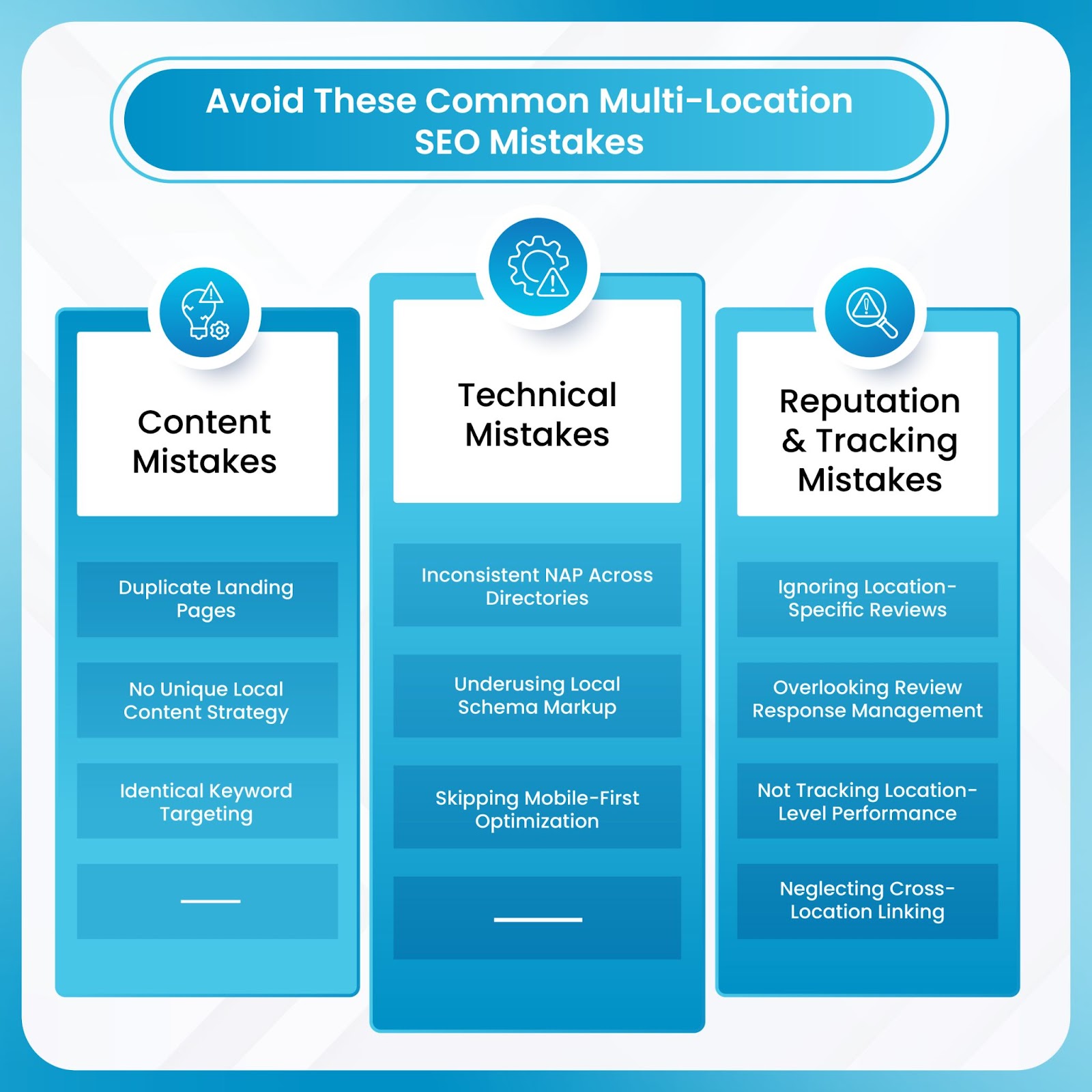
Real-World Applications of White Label SEO
Consider a regional retail chain with 75 locations across the Southeast struggling with inconsistent local search visibility. Different locations ranked well for some terms but poorly for others, and overall brand presence was fragmented across search results.
The company partnered with a white label SEO provider to implement a comprehensive multi-location strategy. The provider conducted a full audit, identifying over 1,200 citation inconsistencies and 45 duplicate Google Business Profiles that were confusing search engines.
Implementation included standardized citation cleanup, unique landing page creation for each location, and comprehensive Google Business Profile optimization. Local content strategies highlighted community involvement and location-specific services while maintaining brand consistency.
Results after 12 months were impressive: average local rankings improved by 40%, organic traffic increased 67% across all locations, and most importantly, revenue grew 14.6% year-over-year, directly attributed to improved local search visibility.
The scalability of white label local SEO services allowed the retailer to expand the program to additional locations acquired during the campaign period without disrupting existing efforts or requiring additional internal resources.
Scaling SEO across dozens or hundreds of locations can be overwhelming without the right tools. That’s where DashClicks comes in—a white-label marketing platform purpose-built to help agencies streamline and scale their SEO services for multi-location clients.
Here’s how DashClicks supports multi-location SEO delivery:
- All-in-One SEO Fulfillment Platform: DashClicks provides full-stack white label SEO services that include keyword research, on-page optimization, content creation, backlink building, and reporting. With a focus on scalability, every campaign is handled by SEO professionals who work behind the scenes under your agency's brand.
- Location-Specific Optimization: Whether your client has 5 or 500 locations, DashClicks ensures that each location is optimized individually. Their team handles local keyword targeting, location-specific page creation, and citation building to enhance local visibility on search engines like Google.
- Automated Citation Management: The platform automates citation submissions and corrections across major directories like Yelp, Google Maps, Apple Maps, and niche industry-specific platforms. This helps maintain consistent NAP (Name, Address, Phone Number) information across all locations—a critical factor in local SEO.
- Google Business Profile Optimization: DashClicks offers optimization services for each location’s Google Business Profile (GBP), including adding photos, managing posts, responding to reviews, and selecting appropriate business categories. This boosts each location’s visibility in local search results and maps.
- Content Marketing Engine: DashClicks supports scalable content creation with its white-labeled blog and landing page services. Whether you need location-based service pages or community-focused blog content, their team delivers SEO-optimized copy tailored for each geographic target.
Why Agencies Choose DashClicks for Multi-Location SEO?
- Scale Without Burnout – Manage 10 or 1,000 locations using repeatable systems and automation tools.
- Full-Service Delivery – From GBP optimization to content creation and link building, DashClicks handles it all behind the scenes.
- Client Transparency – Keep clients informed with branded reports and dashboards that deliver transparency without overwhelming them with technical details.
- Speed and Consistency – Launch faster, maintain brand cohesion across locations, and free up your team to focus on strategy.
Whether you’re an agency ready to take on enterprise clients or a growing business looking to expand your SEO reach, DashClicks enables you to deliver SEO results without the enterprise headaches.
Scaling Your Multi-Location SEO Success
White label SEO offers multi-location businesses and the agencies that serve them a powerful solution to complex local search challenges. The combination of specialized expertise, scalable systems, and cost-effective implementation makes it possible to achieve consistent, high-quality results across hundreds of locations.
The key benefits are clear: dramatic time savings compared to internal management, consistent brand representation across all locations, access to enterprise-level tools and expertise, and significantly improved ROI through efficient resource allocation.
For agencies, white label SEO opens up new market opportunities by enabling you to serve larger clients with more complex needs. The ability to deliver sophisticated multi-location campaigns without massive internal investment allows for better margins and faster growth.
The multi-location SEO landscape will continue evolving, with increased emphasis on hyper-local content, voice search optimization, and integration with emerging technologies. Businesses that establish strong foundations now through white label partnerships will be best positioned to adapt and thrive.
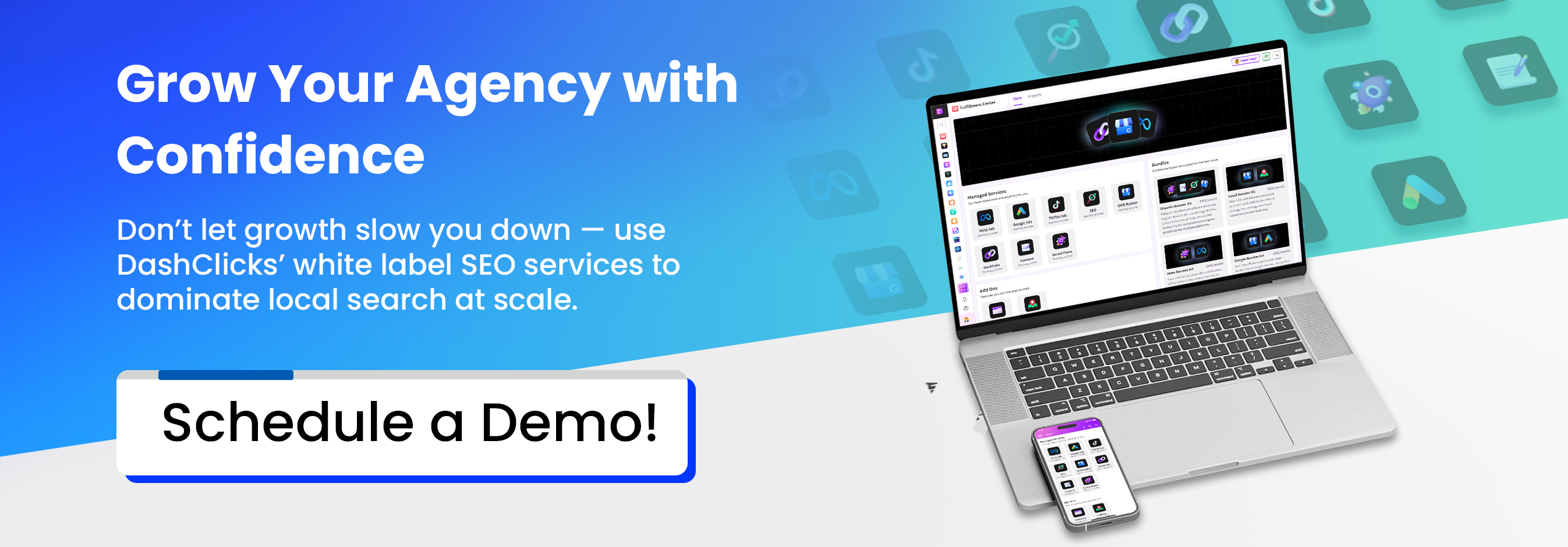
.jpg)
The Right Way to Partner With a White Label SEO Agency (and Avoid Costly Pitfalls)
Digital marketing firms, web design firms, and companies that want to offer more services but don't want to build their SEO team are turning to white label SEO partnerships more and more. Agencies can offer high-quality, effective SEO solutions under their name by outsourcing SEO services to a specialized provider. This helps them keep clients and improves their market position.
This strategic method saves time and money and gives businesses access to specific expertise, which lets them focus on what they do best and grow in a way that lasts, Agencies expanding their service offerings can also benefit from tools like a Video Analyzer, and a Short Video Script Generator which helps break down client video content for performance insights, SEO optimization, and repurposing across digital platforms.
However, not every white label SEO partner is the same. Picking the right one is important for getting real results and keeping clients happy. In this guide, we'll talk about the most important things you should consider when choosing a white label SEO partner that will help your clients succeed online in 2025 and thereafter.
What Makes White Label SEO Necessary?
Here are some perks before you start looking for a partner.
- If you need experienced SEO teams, you can use Expertise on Demand instead of hiring and training your own experts, especially for small business SEO.
- There is no need to pay for full-time staff, so you only pay for the services you need.
- Easily adjust to fluctuating customer needs, scaling up when needed and scaling down when necessary.
- When you white label, all the reports, dashboards, and products have your logo.
These benefits make a strong case, but the problem is choosing who will do the job.
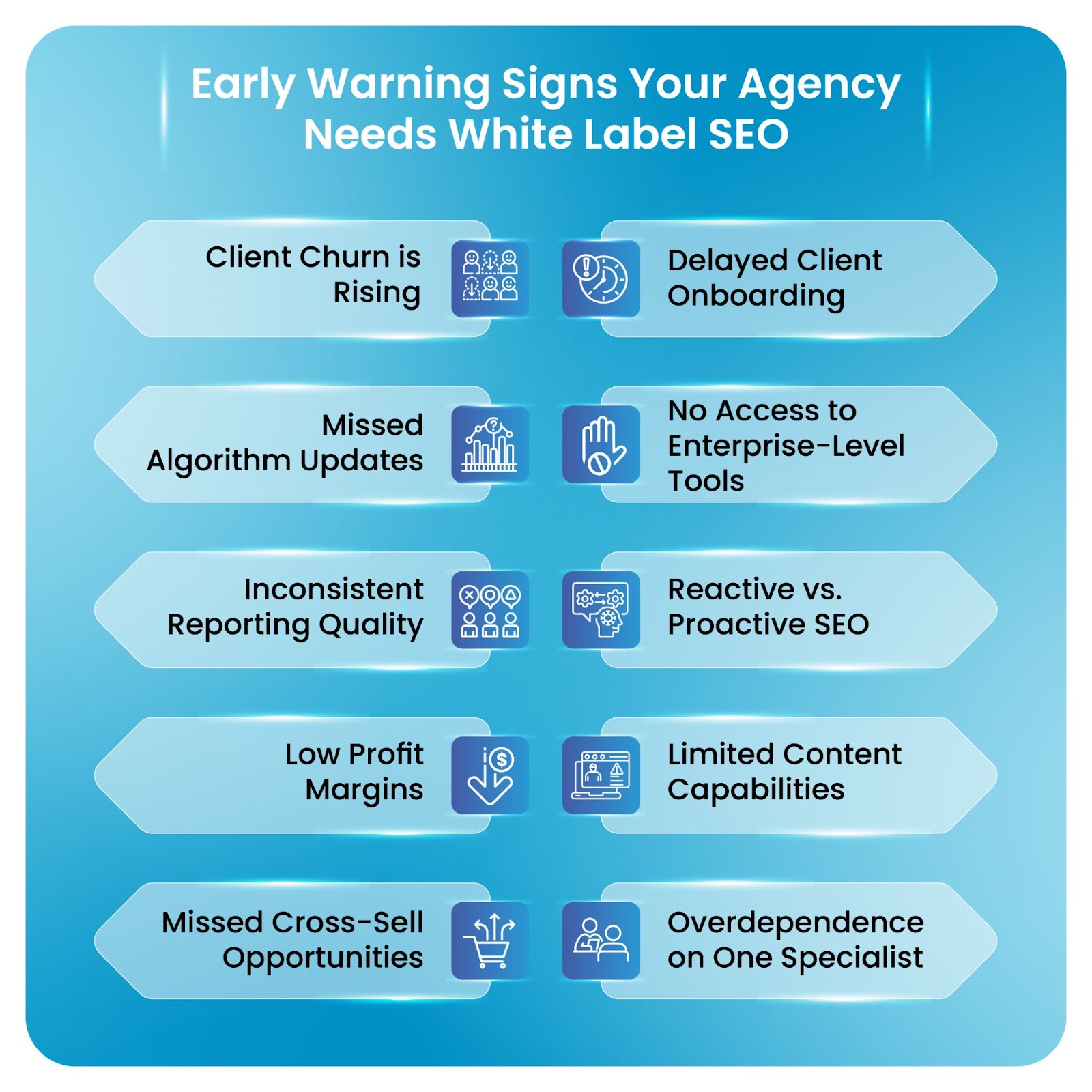
Key Steps to Choosing Your White Label SEO Partner
1. SEO Success Requires Expertise and Experience.
The main reason to look for a white label SEO partner is to benefit from their specific experience. So, it's very important to carefully check out a possible partner's SEO skills. You should look for a service with case studies and client testimonials showing increased traffic, rankings, and conversion rates.
Consider if the provider has industry experience relevant to your clients to help them tailor strategies and comprehend market intricacies. The partner should be skilled in technical SEO audits, keyword research, content creation, and link-building best practices. They should also have experience with your preferred CMS platform—if you use Webflow, for example, look for a white label SEO partner with relevant experience to ensure platform-specific best practices are followed.
2. Transparency and Reporting
Success in white label partnerships requires transparency. A trustworthy service should give you detailed, editable reports with your company's logo that show how your campaign is going and what the most important data is. To avoid getting in trouble with search engines, they should only use honest, "white-hat" SEO methods and be open about how they do things.
The partner must be proactive in updating you and available to answer your inquiries. In addition to providing dashboards or reports that integrate with Google Analytics or Google Search Console, they can be transparent about their SEO tools and data.
3. Modifications and Flexibility
Each client has different SEO needs and goals. There should be a strong white label SEO partner that offers service packages that can be changed to fit the needs of each client, no matter how big or small the business is. Scalability is also very important. For example, when scaling client acquisition, using a data enrichment tool can help you surface relevant company details—like size, industry, and decision-makers—so your team can prioritize and personalize outreach at scale.
This means the partner should be able to handle more work as your business grows and gets more clients or bigger projects. A strong partner will also support agencies looking to improve marketing strategy for diverse industries. The provider should also show that they can change their strategies to fit new algorithms, market conditions, and customer behavior patterns.
4. Conversation and Support
A white label partnership that works well depends on clear and regular contact. Choose a company with a helpful customer service team and easy ways to get in touch with them so that your questions are answered immediately.
A dedicated account manager can be very helpful because they can make communication easier and build a strong sense of partnership and responsibility. Setting up rules for how to communicate from the start is very important. These rules should include preferred methods, how often updates will happen, and how to handle urgent issues or feedback.
5. Pricing and Deal Terms
For a white label SEO partnership to be profitable, both parties must understand how the prices work and the contract terms. Ask for a clear price that includes all costs, including any possible extra fees or charges for more services. Check the pricing plan to make sure it gives you the opportunity to make a profit when you sell the services to others, and that it also meets the needs of your market.
Avoid rigid, long-term contracts that might make it hard for your business to adapt. Instead, look for flexible contract terms that let you make changes based on changing client needs or market shifts.
6. Respecting Privacy and Keeping Data Safe
Discuss how they handle data protection and privacy, especially in light of laws like GDPR and CCPA. To keep sensitive client information safe, make sure the service provider uses strong security measures such as encryption, tight access controls, and regular audits. To make sure that everyone is on the same document when it comes to security, you need a full legal deal that includes NDAs and Data Processing Agreements.
7. White-Labeling Options and Training
Make sure the source really does offer white label solutions, such as reports and materials for clients that can be customized and marked up with your agency's name and contact information. Some providers also offer training and educational materials to help your team understand SEO concepts better and communicate with clients more effectively, which makes the relationship stronger as a whole. For example, foundational SEO insights—like those outlined in this guide from ZenBusiness—can be reinforced with white label resources to ensure consistent messaging and education across your team and clients.
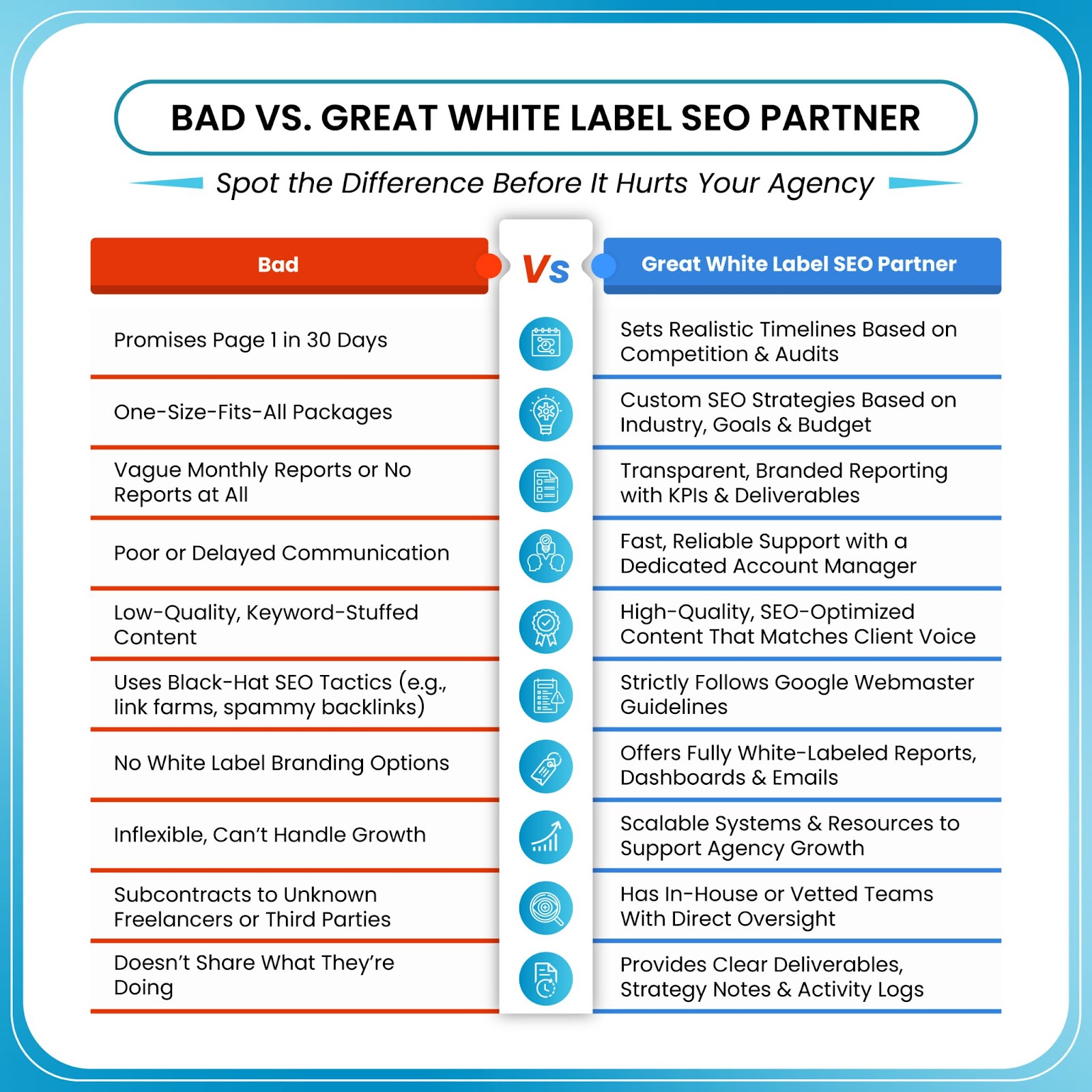
Metrics to Evaluate Success
A white label SEO partnership isn’t “set and forget.” To know if your partnership is truly moving the needle, track specific KPIs that tie directly to your agency’s goals. These metrics help you measure both client satisfaction and business impact:
- Client Retention Rate: If clients stay longer after you’ve partnered with a white label provider, that’s a strong indicator of improved service quality.
- Organic Traffic and Keyword Rankings: Monitor how quickly your clients climb the SERPs for their target keywords and whether traffic aligns with conversion goals.
- Campaign ROI: Track the cost of outsourcing versus the revenue generated from retained and new clients. A successful partnership should boost your margins over time.
- Time Savings: Measure hours saved on campaign execution and reporting—time you can reinvest into strategy, sales, or client relationships.
Regularly reviewing these numbers ensures that the partnership continues to deliver tangible value, not just completed tasks.
Questions to Ask Before Signing a Contract
Choosing a white label SEO agency is a long‑term investment. Asking the right questions upfront helps avoid unpleasant surprises later:
- What SEO tools and platforms do you use? - Ensure they align with your reporting needs and can integrate seamlessly with your existing tech stack.
- Do you have proven results in our clients’ industries? - Request case studies or examples relevant to niches you serve (e.g., e‑commerce, real estate, healthcare).
- How do you handle algorithm updates or major SEO shifts? - A reliable partner should have contingency plans and communicate changes proactively.
- What level of customization do you offer? - Confirm they can tailor strategies, reporting, and even branding to fit your agency’s standards.
- What are your communication and reporting protocols? - Clarify frequency of updates, dedicated account manager availability, and response times for urgent queries.
These questions set expectations and build transparency from day one.
Post‑Partnership Optimization
Signing the contract is only the start of building a strong white label SEO partnership. To get the most out of the relationship:
- Schedule Regular Reviews: Quarterly performance check‑ins help identify wins, address gaps, and realign strategies with client goals.
- Establish Feedback Loops: Gather feedback from your clients and share it with the provider. This ensures strategies remain relevant and continuously improve.
- Refine Goals as You Scale: Your needs will evolve—what worked for 5 clients may not work for 50. Keep your partner informed about growth plans so they can scale accordingly.
- Encourage Knowledge Sharing: Ask your partner to share insights on trends, tools, or tactics so your internal team grows alongside them.
This ongoing optimization turns your partnership from a transactional arrangement into a collaborative growth engine.
DashClicks offers a complete suite of white label SEO services designed for agencies that want to scale without the stress of building an in‑house team. From keyword research and on‑page optimization to link building, content creation, and technical audits, every campaign is executed by SEO specialists using proven strategies and industry‑leading tools.
With fully white‑labeled dashboards and reports, you can present results to clients under your own brand—complete with real‑time performance data. DashClicks’ platform also integrates seamlessly with tools like Google Analytics and Google Search Console, ensuring accurate, transparent insights.
Whether you serve small businesses, e‑commerce brands, or enterprise clients, DashClicks makes it easy to deliver high‑quality SEO outcomes at scale while keeping your agency’s overhead low and your clients satisfied.
Wrapping It Up
Selecting the right white label SEO partner is a strategic decision that can profoundly impact your agency's growth and client satisfaction.
Partnering with the best white label SEO agency ensures not only white-label flexibility but also access to proven strategies, client-ready reporting, and scalable campaign execution for lasting success. You can build a strong partnership that gets real, measurable results for your clients in digital marketing by carefully analyzing possible partners based on their expertise, openness, communication, flexibility, and commitment to doing things correctly.
Remember that the best partner won't just do SEO work for you; they'll also become an extension of your team and help you give more services, improve your reputation, and grow your business in a way that lasts.
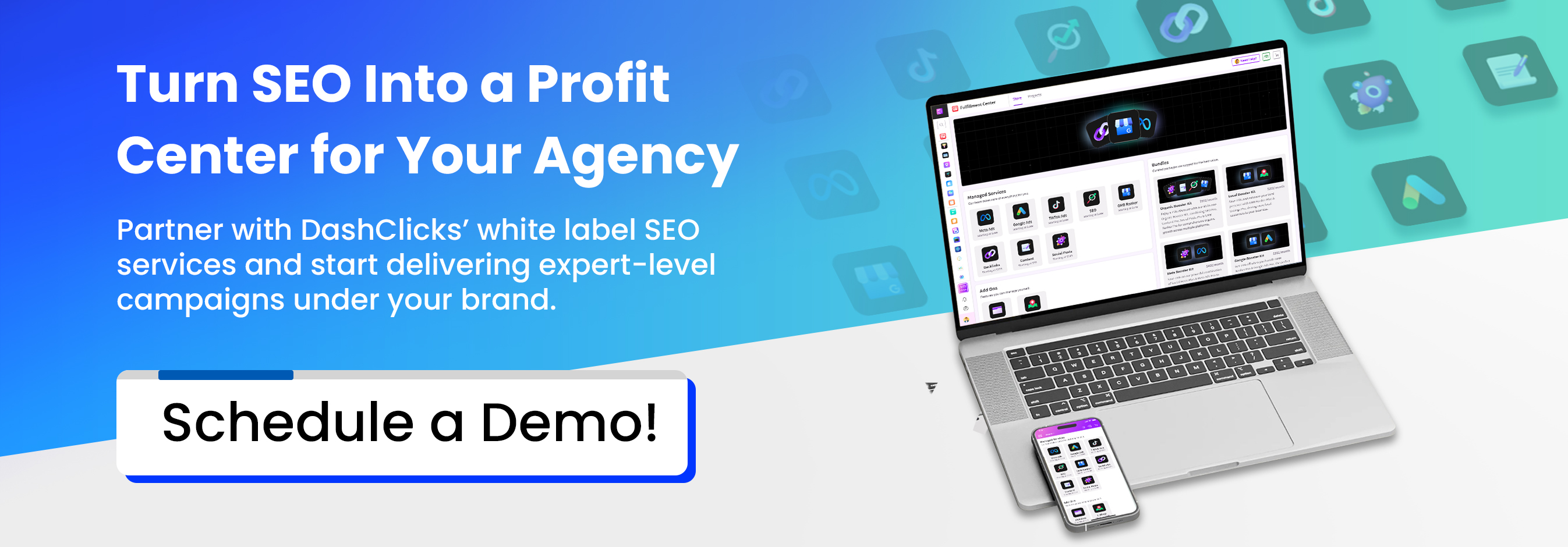

White Label SEO Programs: 13 Factors to Consider When Vetting
Struggling to scale your digital marketing agency while keeping up with diverse client needs? You’re not alone. According to HubSpot, 63% of marketers say generating traffic and leads is their biggest challenge. Meanwhile, industry benchmarks show that around one-third to half of marketing agencies struggle with client acquisition and scaling growth effectively.
For many agencies and small businesses, white label SEO programs offer a powerful solution—providing expert SEO services without the overhead of an in-house team. The global SEO services market is projected to reach $171.77 billion by 2030, with white label partnerships driving a significant portion of that growth.
This comprehensive guide is built for agencies and small businesses looking to scale sustainably through the right SEO reseller partner. Whether you're aiming to improve scalability, reduce operational costs, or deliver high-quality results, choosing the right provider is key to your long-term success.
We’ll explore 13 essential factors you should consider when vetting a white label SEO partner—covering how each one impacts your agency’s scalability, reputation, and client satisfaction.
1. Track Record and Reputation
Your agency’s reputation is only as strong as the partner delivering your services. When evaluating a white label SEO provider, their track record essentially becomes your own. A partner with a proven history of delivering results reduces the risk of client dissatisfaction and builds long-term trust.
Start by reviewing their portfolio and client testimonials. Focus on outcomes backed by data rather than vague claims like “increased traffic.” According to BrightLocal, 87% of consumers read online reviews for local businesses, so third-party validation is crucial.
Use platforms like Clutch, Trustpilot, and Google Reviews to verify credibility. Pay attention to how they respond to negative feedback—it reveals their attitude toward service quality and accountability.
A trustworthy white label SEO company should offer:
- At least 3–5 years of experience in the industry
- Documented case studies with measurable results
- Client retention rates above 85%
- Positive reviews across multiple platforms
- Industry certifications and partnerships with major tools and platforms
2. SEO Expertise and Available Services
The depth and range of your partner’s SEO services will directly impact your ability to serve a wide variety of clients. A comprehensive SEO reseller program should cover the full spectrum of modern optimization practices.
Essential services should include keyword research and strategy, on-page optimization, technical SEO audits, content creation and optimization, link-building campaigns, local SEO for businesses with physical locations, and e-commerce SEO for online retailers. Advanced services might cover voice search optimization, mobile-first indexing strategies, and Core Web Vitals optimization.
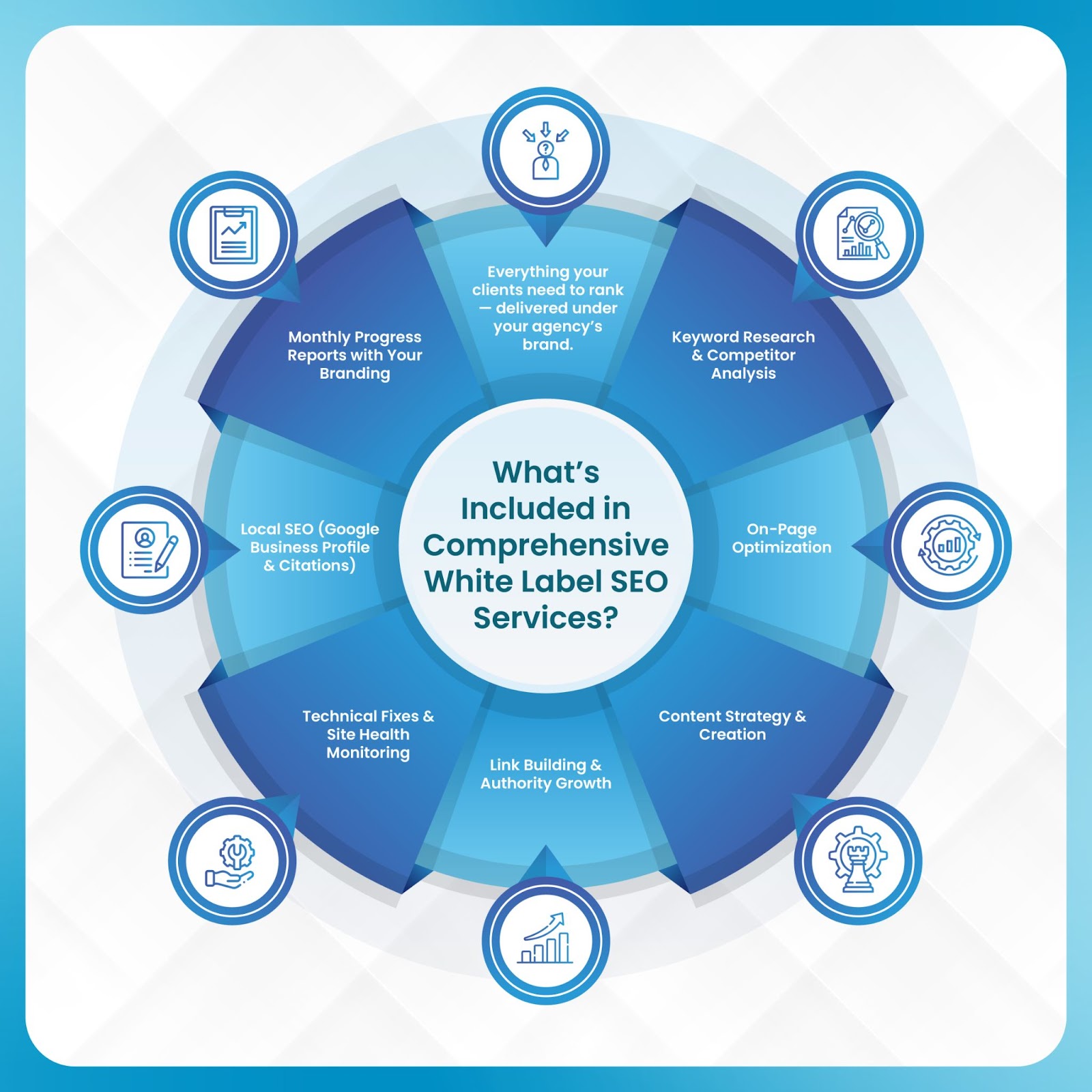
According to Backlinko, businesses that blog receive 97% more links to their website, highlighting the importance of content-focused SEO strategies. Your white label SEO partner should demonstrate expertise across these areas and show evidence of staying current with algorithm updates and industry best practices.
Look for providers who offer specialized expertise in your target industries. A partner experienced in healthcare SEO will understand HIPAA compliance requirements, while one familiar with e-commerce can navigate product schema markup and conversion optimization.
3. Scalability
Your white label SEO partner must accommodate fluctuations in demand as your agency grows. Research by the Small Business Administration shows that only 50% of businesses survive past five years, often due to scalability challenges.
Effective scalability means your partner can handle sudden increases in client volume without compromising service quality. They should offer flexible packages and service tiers that allow you to start small and expand as needed. This includes the ability to add or remove services, adjust campaign budgets, and modify reporting frequency based on client requirements.
Key scalability indicators include:
- Flexible contract terms that don't lock you into rigid structures
- Tiered pricing models that reduce per-client costs as volume increases
- Dedicated account management that scales with your business
- Technology infrastructure capable of handling growth
- Clear processes for onboarding new clients quickly
Ask about their current capacity. A partner already operating near full capacity may struggle to accommodate your expansion plans.
4. Pricing Transparency
Hidden fees can damage client trust and cut into your profits. According to PwC, 73% of consumers view pricing as a major factor in decision-making. Transparent, predictable pricing is essential.
Understand all upfront costs, including setup fees, monthly service charges, and any additional costs for extra services or revisions. Compare different pricing models to find the best fit for your business structure.
Common pricing models include:
- Flat Rate: Fixed monthly cost regardless of hours worked
- Pay-as-you-go: Charges based on actual services delivered
- Project-based: Set price for specific deliverables
- Tiered Packages: Different service levels at various price points
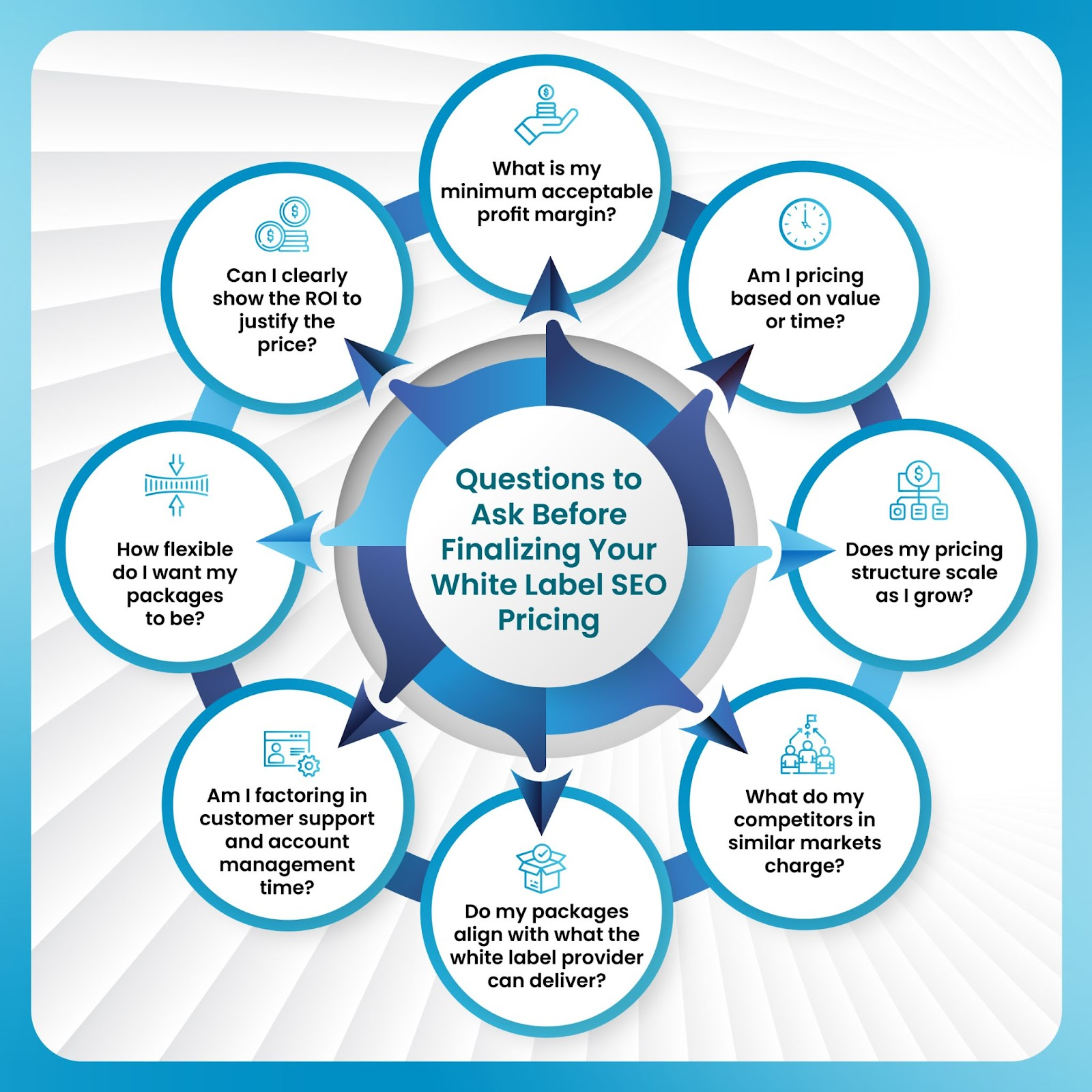
Request detailed service-level agreements (SLAs) that outline what's included in each package, response times for different types of requests, and penalties for missed deadlines. This documentation protects both parties and sets clear expectations.
Be wary of providers offering significantly below-market pricing, as this often indicates shortcuts in service quality or hidden costs that emerge later.
5. Communication and Support
Poor communication can jeopardize client relationships and delay critical projects. According to the Project Management Institute, ineffective communication is the primary cause in roughly one-third of project failures.
Your white label SEO partner should provide dedicated account management with consistent points of contact. Look for providers offering multiple communication channels, including phone, email, chat, and project management platforms.
Essential communication features include:
- Designated account managers familiar with your business
- Regular progress updates and status calls
- 24/7 support for urgent issues
- Clear escalation procedures for problem resolution
- Proactive communication about industry changes or opportunities
Evaluate their response times during the vetting process. If they're slow to respond to sales inquiries, they'll likely be slow to respond to service requests. The best partners provide same-day responses to non-urgent matters and immediate attention to critical issues.
6. Customization and Branding Options
Seamless brand integration is crucial for maintaining client trust and agency credibility. Your white label SEO partner should offer comprehensive branding options that make their services appear as natural extensions of your agency.
Look for providers offering fully branded dashboards that display your logo, colors, and messaging. Client-facing reports should be customizable with your branding elements and formatted according to your standards. The client interface should integrate smoothly with your existing tools and maintain consistent brand identity throughout all touchpoints.
Advanced branding options include:
- Custom domain names for client portals
- Branded email communications
- Your agency's contact information on all deliverables
- Customizable report templates and layouts
- Integration with your existing CRM and project management systems
7. Compliance and Ethical SEO Practices
Working with agencies that follow ethical SEO practices protects both your reputation and your clients' websites from search engine penalties. Google processes over 8.5 billion searches per day, and its algorithms are increasingly sophisticated at detecting manipulative tactics.
White-hat SEO practices focus on creating valuable content, earning legitimate backlinks, and improving user experience. These sustainable approaches build long-term search visibility rather than quick fixes that can result in penalties.
Dangerous black-hat tactics to avoid include:
- Link farming and private blog networks
- Keyword stuffing and content spinning
- Cloaking and doorway pages
- Negative SEO attacks on competitors
- Schema markup manipulation
Verify that your potential partner follows Google's Webmaster Guidelines and stays current with algorithm updates. They should be able to explain their methodologies and provide transparency about their link-building sources and content creation processes.
8. Reporting and Analytics Capabilities
Transparent reporting builds client trust and demonstrates the value of your SEO investments. Modern businesses expect real-time access to their marketing data, with 89% of marketers reporting that data-driven insights improve their campaign performance.
Your white label SEO partner should provide comprehensive reporting that includes keyword rankings and movement, organic traffic growth and sources, conversion tracking and goal completions, backlink acquisition and quality metrics, technical SEO issue identification and resolution, and competitor analysis and market positioning.
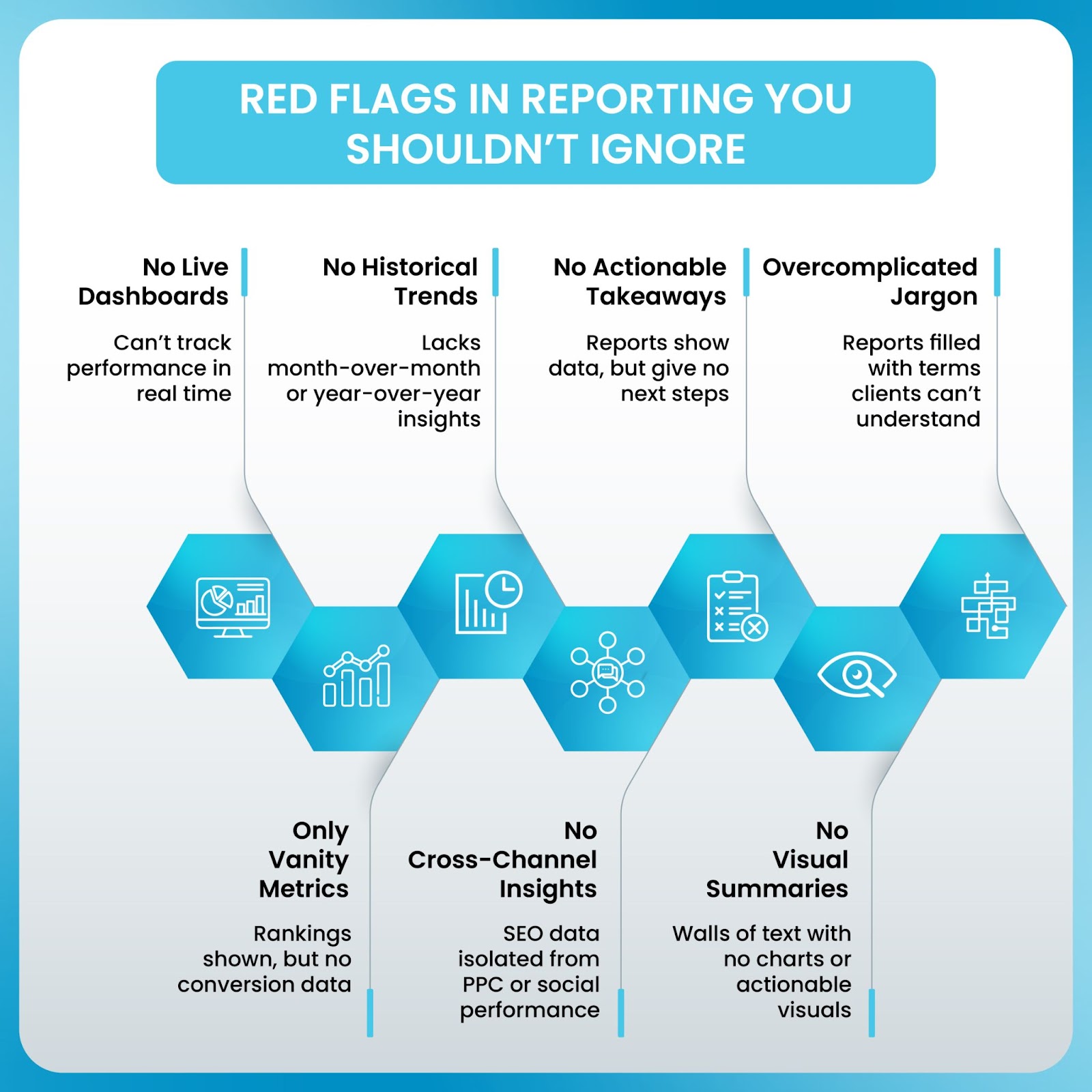
The best reporting platforms offer both automated periodic reports and real-time dashboards that clients can access independently. This transparency reduces the time you spend answering client questions about campaign progress and builds confidence in your services.
Ensure reports are easily understandable for non-technical clients while providing enough detail for informed decision-making. Look for providers who can customize reporting frequency and format based on client preferences.
9. Data Security and Confidentiality
Safeguarding client data is critical when outsourcing SEO work, especially given that 43% of cyber attacks target small businesses. Your white label SEO partner will likely need access to sensitive information, including website analytics, search console data, social media accounts, and sometimes even customer databases.
Essential security measures include:
- Comprehensive non-disclosure agreements (NDAs)
- Data encryption in transit and at rest
- Regular security audits and certifications
- Limited access protocols with role-based permissions
- Secure file sharing and communication platforms
- Clear data retention and deletion policies
Ask about their cybersecurity certifications, employee background checks, and incident response procedures. A security breach involving client data could devastate your agency's reputation and result in legal liability.
10. Client Access and Dashboard Simplicity
User-friendly client dashboards improve satisfaction and reduce support requests. The ideal client portal should provide intuitive navigation that doesn't require training, real-time access to key performance metrics, mobile-responsive design for on-the-go access, role-based permissions for different user types, and integration with popular business tools.
Test the dashboard yourself during the evaluation process. If you find it confusing or difficult to navigate, your clients will too. The best platforms offer demo accounts that let you experience the full functionality before committing.
Consider how the dashboard handles different client sophistication levels. Some clients want high-level summaries, while others prefer detailed technical data. Your white label SEO comapny should accommodate both preferences.
11. Case Studies of Real Success
Concrete examples of past successes provide insight into what your white label SEO partner can achieve for your clients. According to the Content Marketing Institute, case studies are one of the most effective form of content marketing for B2B companies.
Quality case studies should include specific industry contexts that match your target clients, measurable results with before-and-after metrics, timeframes for achieving results, challenges overcome during the campaign, and strategies and tactics employed.
Look for case studies spanning different industries and business sizes. A provider with success stories only from large enterprises may not understand the unique challenges facing small businesses.
Pay attention to the metrics emphasized in case studies. Providers focusing solely on traffic increases without mentioning conversions or revenue impact may not understand business outcomes.
12. Adaptability to Market Trends
SEO evolves rapidly, with Google making hundreds of algorithm updates annually. Your white label SEO partner must stay current with industry changes and adapt strategies accordingly.
Current trends shaping SEO include E-E-A-T (Experience, Expertise, Authoritativeness, Trustworthiness), visual and voice search optimization, AI-powered content and tools, Core Web Vitals and page experience signals, and mobile-first indexing requirements.
According to Google, 50% of consumers who conducted a local search on their smartphone visited a store within a day, highlighting the importance of staying current with mobile and local search trends.
Evaluate how quickly your potential partner adopted recent changes like the helpful content update or product review guidelines. Providers who are slow to adapt may leave your clients behind competitors who embrace new opportunities.
13. Partnership Flexibility
Low-risk partnership options allow you to test fit before making long-term commitments. According to Harvard Business Review, 60-70% of business partnerships fail, often due to misaligned expectations or rigid contract terms.
Look for providers offering trial periods or pilot programs, month-to-month contract options alongside longer-term agreements, the ability to modify services as needs change, clear exit clauses without excessive penalties, and scalable pricing that adjusts with your business growth.
Flexibility also extends to service delivery. Your needs may change as you gain experience with white label SEO or as your client base evolves. The best partners accommodate these changes without forcing you into entirely new agreements.
Consider providers who offer multiple engagement models, from full-service management to a la carte offerings that let you pick specific services as needed.
Further Reading: White Label Services: Maximizing Agency GROWTH Through Partnership
DashClicks – A Leading White Label SEO Provider
If you're looking for a white label SEO partner with both breadth and depth in services, DashClicks is a standout provider trusted by thousands of marketing agencies worldwide.
They offer white label SEO services designed for scale, results, and agency branding. Their SEO services are divided into structured phases—ensuring transparency, strategic planning, and measurable performance at every step.
An Overview of What Makes DashClicks’ SEO Program Exceptional:
A. In-Depth Keyword Research & Strategy Development
DashClicks begins every campaign with thorough keyword research based on the client’s niche, goals, and competition. They use advanced tools and real-time data to identify high-value keywords that align with both traffic opportunities and buyer intent. Their keyword strategy includes:
- Focus keyword mapping to each page
- Long-tail keyword inclusion for organic growth
- Geo-targeted keywords for local SEO clients
- Competitor keyword gap analysis
B. On-Page & Technical SEO
Their team optimizes each page based on modern SEO best practices. This includes:
- Title tag and meta description optimization
- Header tags (H1-H6) structuring
- Internal linking for site architecture
- Mobile responsiveness
- Schema markup implementation
- Image optimization and alt-text
- Fixing crawl issues, broken links, and duplicate content
They also conduct in-depth technical SEO audits and implement improvements like boosting site speed, ensuring secure protocols (HTTPS), and correcting indexing problems—vital for long-term search performance.
C. High-Quality Content Creation
Content plays a pivotal role in SEO, and DashClicks delivers on this with SEO-friendly content designed for both users and search engines. Their writers create:
- Optimized website pages
- Blog posts and supporting content
- Geo-targeted location pages
- Service pages based on keyword clusters
- Niche content aligned with each client’s tone and branding
Their writing team ensures every piece is crafted for relevance, quality, and engagement—critical for building E-E-A-T (Experience, Expertise, Authoritativeness, and Trustworthiness).
D. Link-Building & Off-Page SEO
Backlinks are one of the most important ranking factors, and DashClicks executes a clean, ethical link-building strategy that focuses on:
- Acquiring backlinks from high-authority domains
- Avoiding link schemes or low-quality sources
- Diversified anchor text strategies
- Brand mentions and citations for local SEO
They also handle directory submissions and reputation management for small businesses that rely on visibility in local search results.
E. Transparent Reporting & Real-Time Dashboards
DashClicks provides agencies and clients with real-time reporting dashboards that are fully white-labeled. You can track:
- Keyword rankings and SERP movement
- Organic traffic growth
- Click-through rates (CTR) and conversions
- Backlink metrics
- Completed deliverables and campaign progress
The dashboard is intuitive, mobile-friendly, and customizable—allowing agencies to present live SEO data under their own brand. Whether you’re an agency new to outsourcing or you're looking to expand your current offerings, DashClicks offers a robust, transparent, and results-driven white label SEO services that scales with your growth.
Key Takeaways for Your Agency's Success
Choosing the right white label SEO partner isn't just a vendor decision—it's a strategic move that will define your agency's growth trajectory and service capabilities. The 13 factors we've covered provide a comprehensive framework for evaluation, but remember that the best partner for your agency depends on your specific needs, client base, and growth objectives.
By thoroughly evaluating track record and reputation, service expertise, scalability options, pricing transparency, communication standards, branding capabilities, reporting features, ethical practices, security measures, user experience, proven results, market adaptability, and partnership flexibility, you'll position your agency for sustainable growth and client satisfaction.
The most successful agency partnerships are built on shared values, complementary strengths, and mutual commitment to client success. Take time to find a partner who aligns with your agency's mission and can grow alongside your business.
Start by shortlisting potential white label SEO companies that meet your criteria using this guide. Request demos or introductory calls to better understand their deliverables and support infrastructure. The right partnership can unlock new possibilities for your business and provide the foundation for long-term success in the competitive digital marketing landscape.
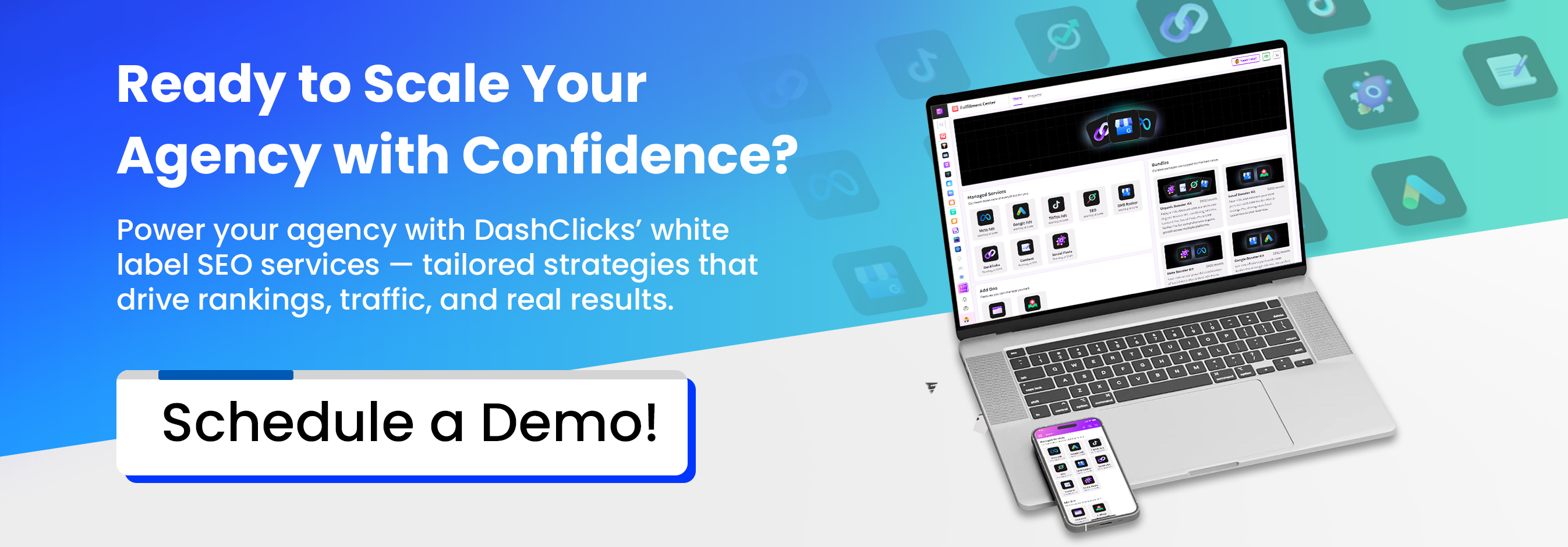

Becoming a White Label SEO Reseller: A Comprehensive Guide to Scaling Your Agency
The digital marketing world is growing faster than ever, and SEO is leading the charge. With over 93% of all online experiences beginning with a search engine, it’s no surprise that businesses across all sectors are ramping up their SEO efforts to drive organic visibility, build trust, and secure long-term growth.
The global SEO services market is projected to rise from $68.1 billion in 2023 to over $103.24 billion by 2028, according to recent industry research. This surge highlights a massive opportunity for digital agencies to offer SEO—not necessarily by building an in-house team, but by reselling white label SEO services under their brand.
If your agency lacks the bandwidth, specialized staff, or technical expertise to provide end-to-end SEO internally, becoming a white label SEO reseller could be the fastest and most cost-efficient path to scale.
Why Agencies Are Abandoning the “Do It All” Mindset?
Trying to master every digital service internally isn’t just impractical—it’s increasingly unsustainable. Modern agencies are under pressure to deliver faster, provide more value, and maintain quality, all while staying profitable. Hiring a full SEO team, managing training, and keeping up with Google’s 500+ algorithm updates yearly simply isn’t feasible for most small or mid-sized agencies.
A recent HubSpot report revealed that nearly 50% of marketing agencies outsource at least part of their SEO, with white label partnerships being one of the most common models. Why? Because they allow agencies to scale rapidly without operational complexity or hiring costs.
Rising Demand for SEO Services Among Businesses
Businesses are investing more into SEO than ever before—and they’re looking for providers who can deliver measurable results. Consider these key stats:
- 70% of marketers say SEO is more effective than PPC for generating sales over time (Databox).
- 75% of users never scroll past the first page of Google results (HubSpot).
- Companies that blog consistently (a key component of SEO) get 67% more leads than those that don’t.
As these trends continue, marketing agencies must meet this demand—or risk losing clients to competitors who do.
What “White Label” Really Means for Your Brand Identity?
Many agency owners hesitate at the idea of outsourcing, fearing it could dilute their brand. However, white label SEO is designed to do the opposite—strengthen your brand presence while expanding your capabilities.
Here’s how:
- Fulfilment Behind the Curtain: White label SEO providers handle all back-end work (strategy, link building, content, audits) while your brand remains the face of the service.
- Client Trust Preservation: You remain the primary point of contact. Clients only see your branding on reports, dashboards, and communications.
- Psychological Advantage: When clients see a unified brand (yours), it builds confidence. There’s no need to reveal that fulfilment is outsourced—because with white label services, it feels in-house.
What Does It Mean to Be a White Label SEO Reseller?
A white label SEO reseller is an agency that sells SEO services under its brand while outsourcing the actual execution to a third-party provider. The client only interacts with your agency, never knowing that another team is handling the fulfillment work.
This model provides the best of both worlds: you can offer high-quality SEO services without needing in-house specialists, developers, or content writers.
What “White Label” Means for Client Perception and Brand Control?
Client trust is one of your most valuable assets. White label SEO helps protect and enhance that trust by:
- Delivering expert-level SEO without delivery delays or inconsistencies.
- Ensuring all reports, dashboards, and deliverables are fully branded.
- Giving clients a seamless experience, with no sense of third-party involvement.
According to BrightLocal, 84% of customers value transparency and brand consistency when working with marketing service providers. White label SEO lets you deliver both—at scale.
Spotting the “Reseller-Ready” Moment in Your Agency’s Journey
Knowing when to evolve from a full-service provider into a white label SEO reseller can make all the difference in your agency’s growth trajectory. If you're on the fence, look out for these signs—it might be time to stop juggling everything and start scaling smart.
- Clients Keep Requesting SEO… But You Can’t Fulfill It Internally: If you're constantly turning down SEO projects or referring them to other providers, you're leaving money—and long-term client relationships—on the table. Reselling lets you say “yes” to more without overloading your team. Whether it’s keyword strategy, content creation, or local SEO, repeated client demand signals a clear opportunity.
- Your Team Lacks the Technical SEO Expertise: You may offer social media, email marketing, or web design—but SEO is a different beast. It requires ongoing training, advanced tools, and deep knowledge of algorithms, audits, link-building, and more. According to Moz, 64% of marketers consider link-building the most challenging aspect of SEO. If your team isn’t equipped to handle this complexity, outsourcing fulfilment is the smart move.
- You Want to Increase MRR Without Increasing Operational Costs: Recurring revenue is the backbone of any scalable agency model. White label SEO allows you to add high-margin, recurring services without the cost of hiring new staff or building processes from scratch. Agencies with recurring revenue models grow 2.3x faster than those dependent on one-off projects (Forrester). You get the benefit of monthly SEO retainers—without the burden of fulfilment.
- Your Agency’s Growth Has Plateaued Due to Limited Offering: If you're great at design, ads, or branding—but clients start asking for comprehensive digital packages—limited services can hold your agency back. Expanding into SEO unlocks new markets, enhances client retention, and positions you as a one-stop solution. Offering bundled services can increase client lifetime value by up to 50% (HubSpot).
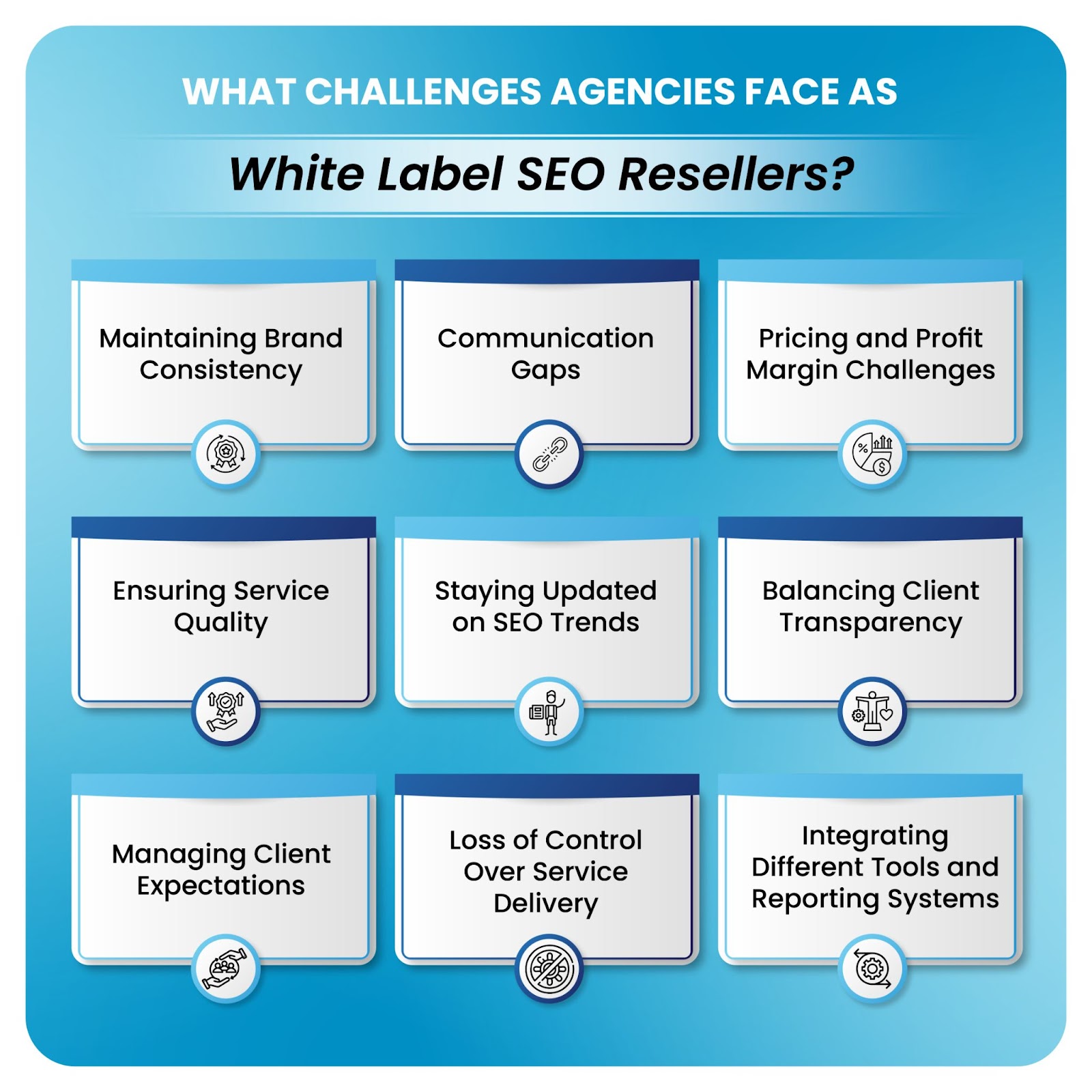
Steps to Becoming a White Label SEO Reseller
Ready to scale your agency without the headaches of in-house fulfilment? Follow this structured roadmap to build a thriving white label SEO offering under your brand.
Step 1: Assess Your Current Service Capabilities
Before jumping in, take a clear-eyed look at your agency’s existing capabilities:
- Do you lack in-house technical SEO skills such as site audits, schema markup, or crawl optimisation?
- Are your clients requesting high-quality blog content or backlinks you can’t consistently deliver?
- Is your team stretched too thin to manage SEO projects while handling your core services?
By identifying your internal gaps—whether it’s knowledge, bandwidth, or tools—you’ll be better equipped to find the right white label SEO partner who fills those exact needs.
Pro Tip: Survey your clients to discover untapped SEO demand you might be missing.
Step 2: Choose the Right SEO Reseller Partner
Your reseller will be an extension of your team—so it’s critical to choose wisely. Look for:
- Proven Track Record: Ask for verifiable results—case studies, testimonials, and third-party reviews. Check for niche expertise (e.g., local SEO, eCommerce, etc.).
- Transparency: Ensure clear pricing models, well-defined deliverables, and transparent reporting mechanisms are in place. Ambiguity is a red flag.
- Flexible Packages: A one-size-fits-all solution won’t cut it. Look for customisation based on business size, industry, and goals.
- Responsive Support: Fast, consistent communication is essential—ideally through a dedicated account manager or partner success team.
Further Reading: How to Choose a White Label SEO Partner That Delivers Real Results
Step 3: Set Realistic Expectations With Clients
SEO is not an overnight fix—it’s a long-term investment. One of the biggest mistakes agencies make is overpromising results.
- Be upfront. Results typically begin to appear between 3 to 6 months.
- Educate clients on KPIs like keyword rankings, traffic growth, and backlink acquisition.
- Provide regular performance reports and explain the “why” behind each metric.
Pro Tip: Use branded reports and dashboards to reinforce credibility and transparency.
Step 4: Integrate White Label SEO Into Your Agency Workflow
A seamless process is key to delivering consistent value.
- Build SEO tasks into your existing onboarding and project timelines.
- Assign internal team members to liaise with the white label SEO provider.
- Use shared tools like DashClicks’ Conversations Software to centralise communication.
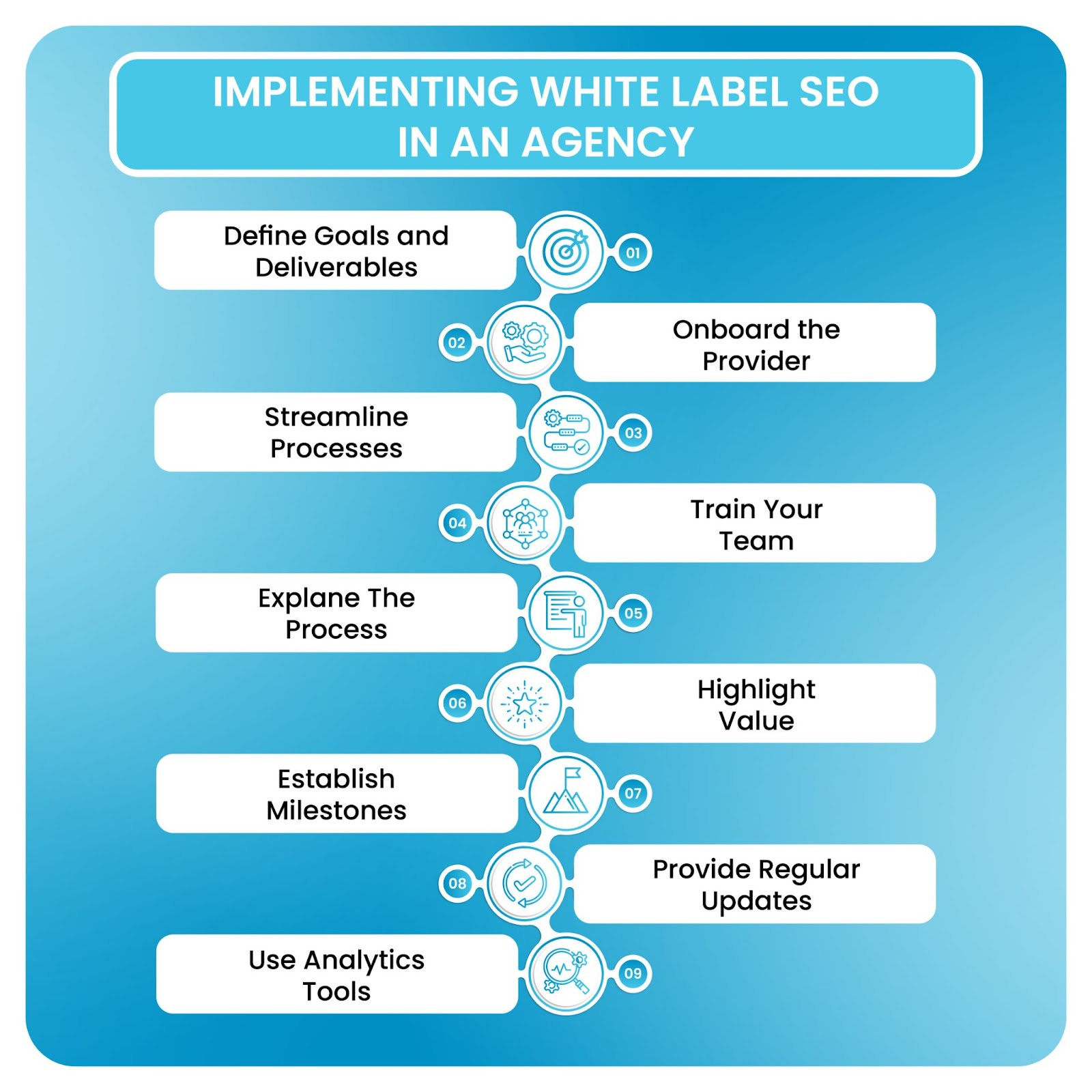
The smoother your internal processes, the better the client experience.
Step 5: Leverage Automation and Technology
Manual processes don’t scale—but automation does. Leading white label providers like DashClicks offer:
- Live Dashboards: Give clients access to real-time SEO metrics and campaign progress.
- Automated Reports: Save hours on monthly performance reporting.
- CRM & Task Integrations: Keep sales, support, and fulfilment in sync.
Automation not only saves time, but it also reduces errors and enhances your professionalism.
Fact: Agencies using automation grow 1.6x faster than those relying on manual methods.
Step 6: Brand Everything as Your Own
Client experience is everything—and branding plays a major role in shaping it.
- Use white label dashboards, reports, emails, and client portals.
- Ensure your logo, colours, and voice are consistently applied across all touchpoints.
- Reinforce that your agency is the driving force behind the results, even if fulfilment is outsourced.
This level of polish positions you as a premium provider and builds long-term loyalty.
Step 7: Focus on Sales and Client Growth
With SEO fulfilment handled, you can shift your energy toward revenue-driving activities:
- Upsell existing clients on SEO if they’re already buying PPC, web design, or social media services.
- Increase outreach and sales activity without worrying about delivery delays.
- Cross-sell SEO with related services like content marketing or GMB optimisation.
Stat: Agencies that outsource SEO report an average revenue increase of 32% within the first year.
Avoiding the Top 5 “Silent Killers” of SEO Reseller Programs
While white label SEO services can be a powerful way to scale your agency, success hinges on strategy, communication, and oversight. These five pitfalls silently eat away at performance, client trust, and long-term revenue—often without immediate warning signs.
1. Ignoring Quality Control and Relying Blindly on Vendors
One of the biggest risks agencies make is assuming their reseller partner will always deliver consistent, high-quality work—without ongoing oversight.
Why it’s dangerous:
- SEO success depends on quality content, natural backlinking, ethical practices, and adherence to Google's guidelines.
- A vendor cutting corners (e.g., spinning content, low-quality backlinks) may produce short-term results—but can damage your client’s rankings or trigger penalties long-term.
- Since your agency’s name is on every report, you carry the blame if something goes wrong.
What to do instead:
- Regularly audit the deliverables your white label team produces.
- Use live dashboards and transparent task tracking (like those offered by DashClicks) to stay in control.
- Establish a feedback loop and review reports, content samples, and links before they reach clients.
2. Misaligned KPIs: What the Provider Optimizes vs. What Clients Expect
Many agencies lose clients because they don’t align business goals with what the SEO provider is optimizing for. For instance, your client wants leads, but your provider is focused on keyword rankings or blog traffic that doesn’t convert.
Why it matters:
- Clients care about outcomes: more calls, more form fills, more revenue—not just technical metrics.
- If you don’t define success clearly, even a technically “good” campaign can appear like a failure.
What to do instead:
- Set mutually agreed KPIs upfront, such as organic leads, calls, conversions, or rankings for purchase-intent keywords.
- Choose a provider that supports goal-oriented strategies—not just cookie-cutter SEO templates.
- Customize each campaign’s focus based on the client’s niche, goals, and conversion funnel.
3. Overpromising Rankings in Unrealistic Timeframes
In an attempt to win clients quickly, some agencies make the fatal mistake of promising top rankings within a month or two—especially for competitive keywords.
Why it’s harmful:
- SEO is a long-term strategy. Quick wins are possible, but rarely sustainable.
- Unrealistic promises lead to client disappointment, high churn, and negative reviews—even if the campaign is performing well by industry standards.
What to do instead:
- Educate your clients from day one: SEO takes 3–6 months to build traction, and even longer for competitive markets.
- Emphasize incremental gains—like improved site health, higher domain authority, and better keyword positioning.
- Use clear timelines, milestone reports, and visual progress tracking to set the right expectations.
4. Not Adapting Packages to Evolving Algorithm Changes
Google updates its search algorithm thousands of times per year—and major core updates can instantly tank rankings that were stable for months.
What happens if you don’t adapt:
- Outdated SEO tactics (like over-optimized anchor text, keyword stuffing, or spammy links) stop working—or worse, trigger penalties.
- Packages that worked last year may be completely ineffective today.
What to do instead:
- Work with a provider who actively monitors Google algorithm updates and adjusts strategy accordingly.
- Regularly update your SEO packages to reflect modern best practices—like helpful content, E-E-A-T (Experience, Expertise, Authoritativeness, and Trustworthiness), and mobile-first indexing.
- Don’t “set and forget.” SEO is a living, breathing process.
5. Treating Fulfillment as “Set and Forget”
White label doesn’t mean hands-off. Some agencies assume once they outsource SEO, their job is done. That’s a mistake.
Why it fails:
- Client communication, reporting, and campaign direction still fall on your shoulders.
- Without regular check-ins, performance reviews, or course corrections, even great providers can fall out of sync with client needs.
What to do instead:
- Schedule monthly strategy reviews with your white label SEO partner.
- Maintain regular client reporting calls, using white-labeled dashboards to demonstrate transparency.
- Stay proactive. Ask for feedback from clients and escalate concerns early.
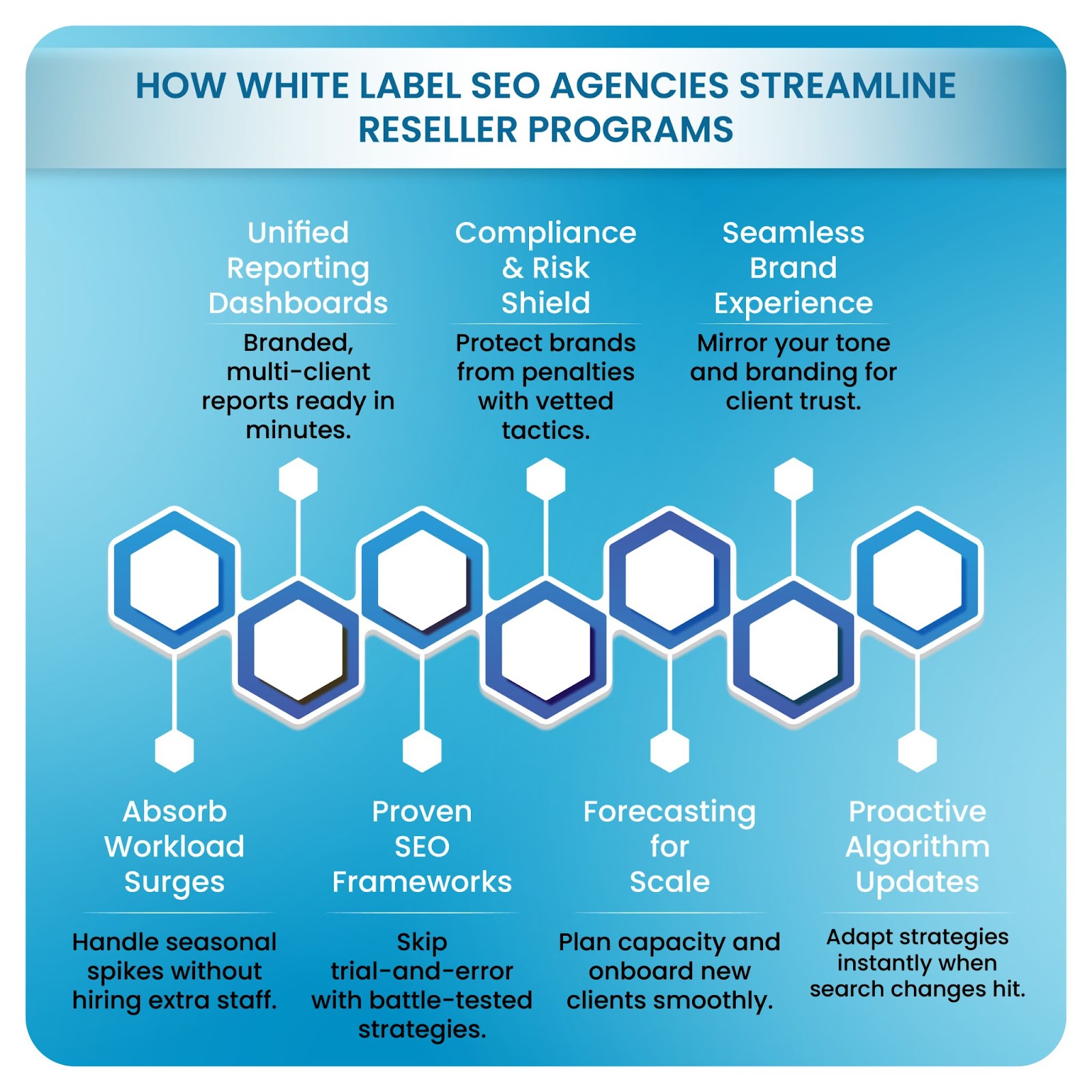
The Future of SEO Reselling: Where the Market Is Headed
The SEO landscape is evolving at a breakneck pace—driven by AI advancements, changing search behaviour, and Google’s continual focus on quality and intent. For agencies reselling SEO, staying competitive means not just keeping up, but adapting their offerings to meet what’s next.
Here’s what the future of SEO reselling looks like, and how your agency can prepare:
1. Hyper-Local SEO and Map Pack Dominance
Local searches like “near me” or “open now” have surged by over 400% in recent years, and nearly 46% of all Google searches now have local intent. That means the Google Map Pack (local 3-pack) is more valuable than ever.
What it means for resellers:
- Expect increasing demand from SMBs, medical practices, legal firms, and home services to dominate their local search results.
- SEO packages will need to include local citation building, NAP consistency, Google Business Profile optimization, and localized content tailored for specific zip codes or neighborhoods.
- Agencies must prioritise reputation management and review generation, both of which influence local rankings.
Opportunity: White label providers that offer hyper-local SEO packages—including dynamic location page creation and Google Maps integration—will lead the charge.
2. E-E-A-T and Brand Authority as Ranking Factors
With Google’s emphasis on Experience, Expertise, Authoritativeness, and Trustworthiness (E-E-A-T), SEO is moving far beyond technical fixes and backlinks.
Why this matters:
- Brands that build trust, showcase real authors, and demonstrate credible expertise will have an edge in organic rankings.
- Google’s algorithm is rewarding authentic content—especially in Your Money or Your Life (YMYL) niches like finance, health, and law.
Reseller strategy shift:
- Providers will need to invest in expert-written content, author bios, first-hand experience case studies, and stronger digital PR strategies.
- Agencies must position themselves as thought leadership builders, not just keyword rankers.
Pro Tip: Choose white label partners who use real content writers with subject expertise and allow branded authorship in deliverables.
3. Voice Search and Zero-Click Results
As of 2025, 20–21% of global internet users use voice search regularly, and zero-click searches already account for more than 65% of Google results—where users find answers directly on the search results page (SERP) without clicking.
What changes:
- SEO resellers must optimise for conversational queries, featured snippets, FAQs, and structured data.
Content must be formatted to quickly answer questions—preferably in 15–30 word summaries. - Schema markup, question-based content, and mobile-first designs will become non-negotiable.
Voice search-specific SEO includes:
- Targeting long-tail keywords that mimic natural speech.
- Optimising for “who, what, where, when” queries.
- Ensuring fast page load speeds and mobile responsiveness.
Key Takeaway: The most successful white label SEO programs will adapt to the growing need for immediate answers, frictionless access, and natural language optimisation.
4. Subscription-Based SEO Reselling
SEO has traditionally been sold as a monthly retainer, but the future is shifting toward tiered subscription models with clearer deliverables, bundled features, and automation baked in.
Why subscriptions win:
- They offer predictable revenue for agencies.
- Clients appreciate transparency and simplicity in what they’re buying.
- Automation platforms like DashClicks allow plug-and-play service bundles that reduce fulfillment time and costs.
What this model looks like:
- Bronze, Silver, Gold SEO plans—each with defined services (e.g., X blogs, X backlinks, X optimisations per month).
- Easy upsell/cross-sell pathways for PPC, social media, and content marketing.
- Clients receive automated, white-labeled reports and dashboards.
Future-focused agencies will adopt these models to scale faster, reduce churn, and enhance client satisfaction—especially when paired with smart onboarding and real-time analytics.
Why DashClicks Is the Go-To White Label SEO Partner?
If you’re stepping into the world of white label SEO, choosing the right partner is crucial. DashClicks is built specifically for digital marketing agencies looking to scale without compromising quality, transparency, or client experience.
Here’s why DashClicks’ white label SEO services stands out from the rest:
1. Expert Team: Gain access to a dedicated team of seasoned SEO professionals with proven experience in technical SEO, on-page optimisation, link building, and content strategy. DashClicks’ experts stay ahead of Google’s algorithm updates, so your clients always receive up-to-date, white-hat SEO strategies that align with best practices. Whether it's fixing crawl errors or crafting keyword-rich blog content, their team handles the heavy lifting with precision.
2. Transparent Fulfilment: With DashClicks, you’re never in the dark. You can track every deliverable—including backlinks, citations, content pieces, and technical SEO audit—directly within your dashboard. This transparency allows you to answer client questions confidently, provide updates during meetings, and maintain complete trust throughout the campaign. It's like having your in-house team, but with full visibility and zero management overhead.
3. 100% White Label: Everything your clients see—from reports and emails to dashboards and domain portals—is fully branded with your agency’s name, logo, and tone of voice. DashClicks operates entirely behind the scenes, meaning your clients never know a third party is involved. This keeps your brand front and centre, reinforcing your agency’s value and strengthening long-term client relationships.
4. Flexible Pricing: DashClicks offers scalable SEO packages that fit agencies of all sizes and specialisations—from boutique firms serving local businesses to large agencies handling eCommerce or enterprise accounts. Whether you’re managing a handful of clients or hundreds, you can choose the service level and budget that matches your needs—without committing to fixed contracts or overpaying for services you don’t use.
Whether your clients are local shops or national eCommerce brands, DashClicks has packages that fit.
Is White Label SEO Right for Your Agency?
If your goal is to scale without adding complexity, white label SEO is your leverage point. It empowers your agency to deliver high-value services, retain clients longer, and grow revenue—without reinventing the wheel.
White label SEO lets you say "yes" to more opportunities and deliver consistent results that build client trust.
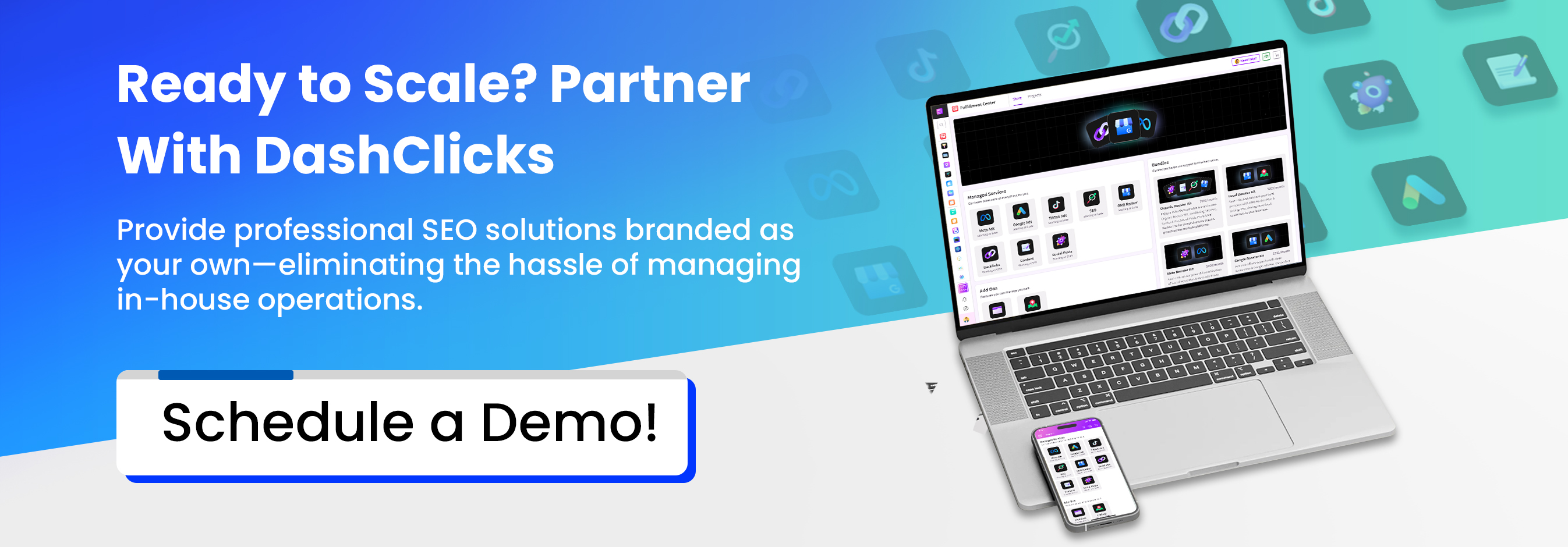

No results found.
Please try different keywords.
Get Started with
DashClicks Today
Get found online, convert leads faster, generate more revenue, and improve your reputation with our all-in-one platform.
.svg)
Unlimited Sub-Accounts
.svg)
Unlimited Users
.svg)
All Apps
.svg)
All Features
.svg)
White-Labeled
.svg)
Active Community
.svg)
Mobile App
.svg)
Live Support
.svg)
100+ Tutorials
.svg)
Unlimited Sub-Accounts
.svg)
Unlimited Users
.svg)
All Apps
.svg)
All Features
.svg)
White-Labeled
.svg)
Active Community
.svg)
Mobile App
.svg)
Live Support
.svg)
100+ Tutorials
.svg)
Unlimited Sub-Accounts
.svg)
Unlimited Users
.svg)
All Apps
.svg)
All Features
.svg)
White-Labeled
.svg)
Active Community
.svg)
Mobile App
.svg)
Live Support
.svg)
100+ Tutorials



.svg)
.svg)
.svg)
.svg)
.svg)


